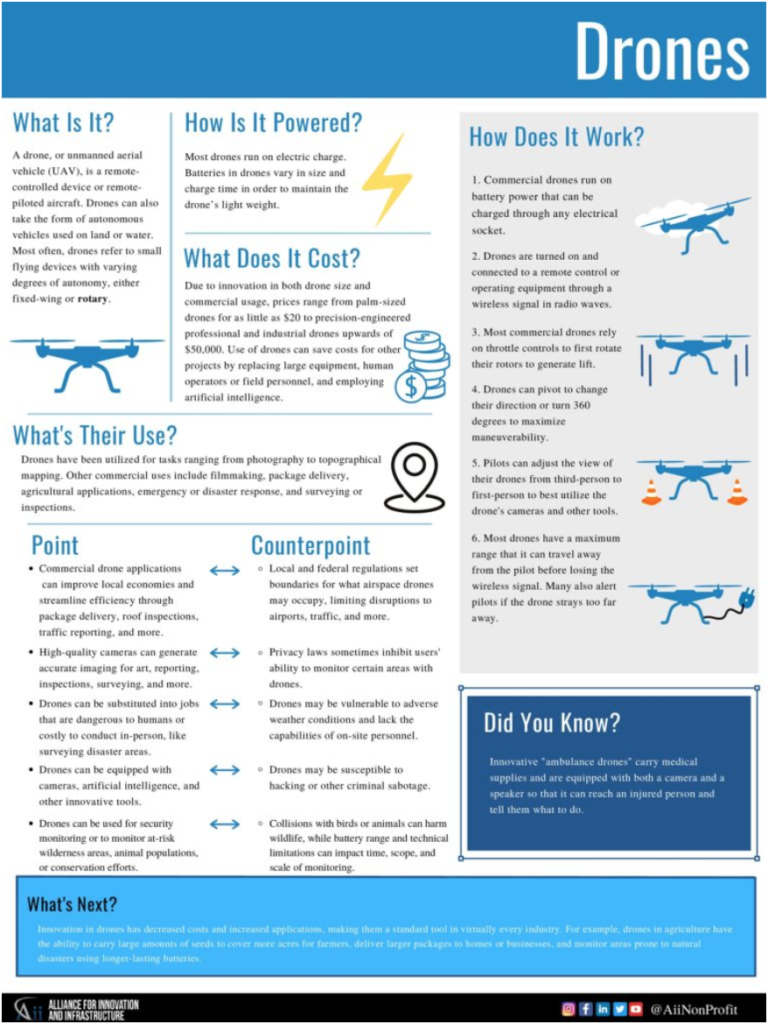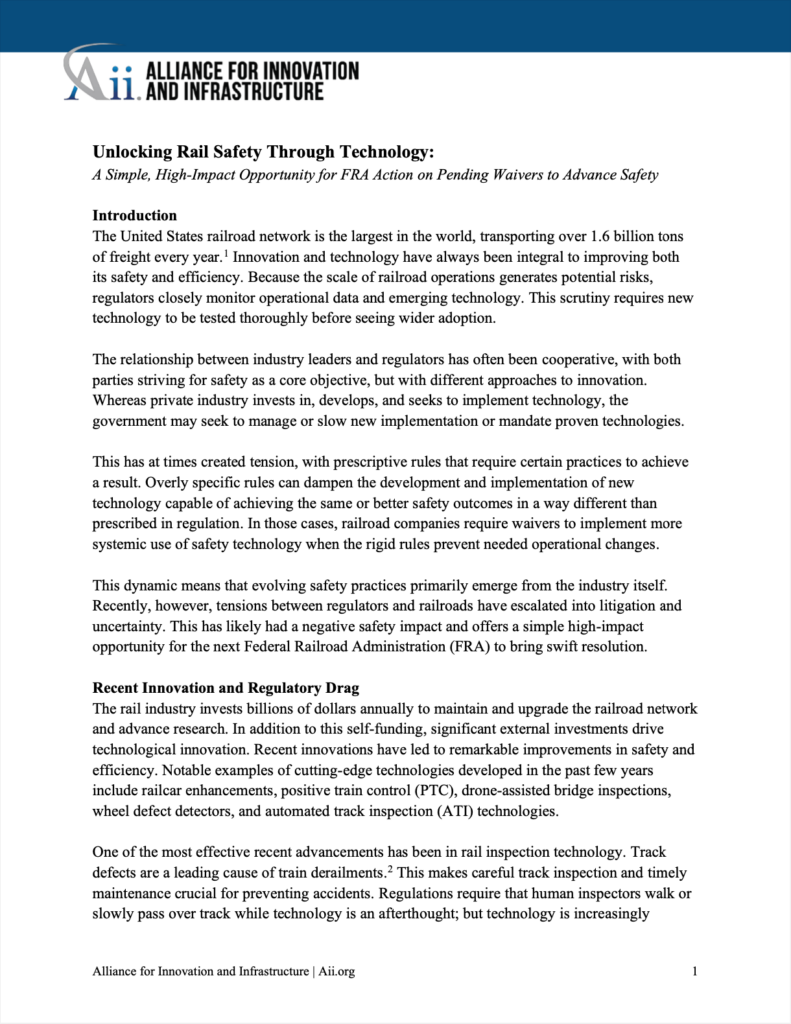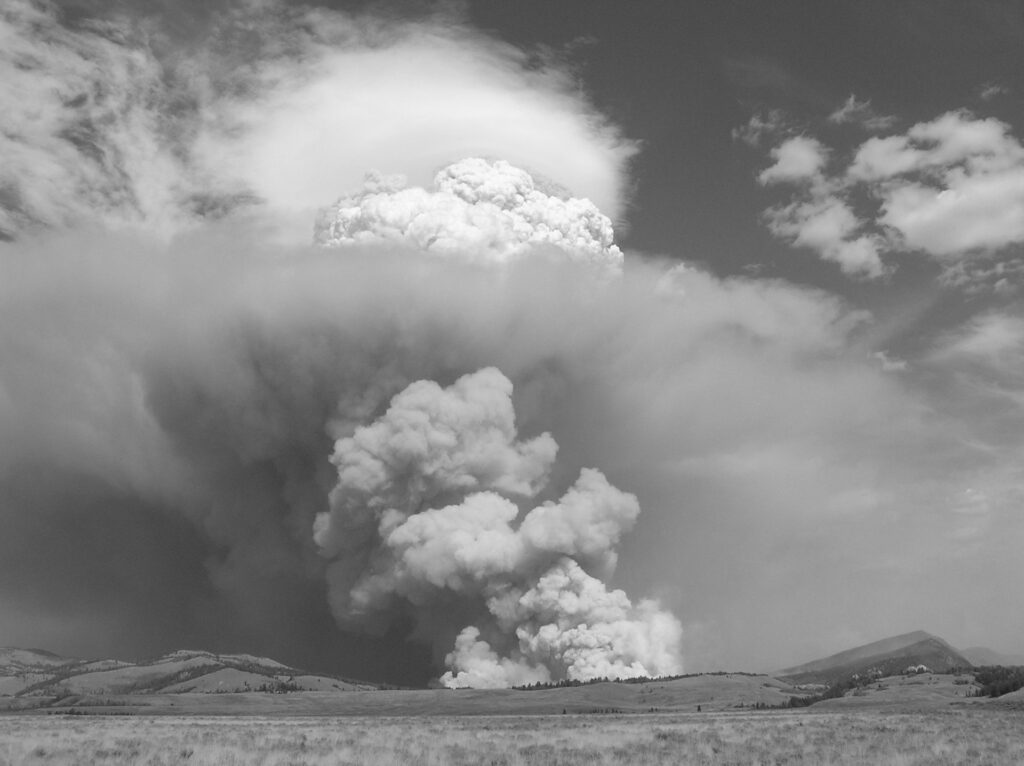Background
The United States is rocketing into the future at a shockingly rapid pace. Autonomous vehicles, drones, artificial intelligence, and blockchain are only the beginning of the story, and Aii is dedicated to researching the shortfalls, promoting creative solutions, and encouraging the prudent use of technology across industry. Crypto features and cybersecurity will also become increasingly critical to the economy and national security in the next few years.
These areas overlap considerably with other policy spaces. As drones increase in number and application, the Federal Aviation Administration will become involved to set the rules for the airway. Corporations, innovators, and the government will influence each other, and cooperation is essential for public safety and efficiency.
Technological advancements also revive older and more traditional appliances and equipment. The Internet of Things is constantly expanding and awakening formerly analog technology. This double edged advancement greatly benefits consumers and efficiency, allowing remote control of and communication between homes, vehicles, and appliances, but opens the door to hacking, privacy invasion, and sabotage.
The future of innovation is, by its very nature, unknown. So, best practices are essential to safeguard data. Communication among stakeholders and regulators is also critical.
The Challenge
Where innovation is concerned, the problem is anything and everything. We innovate to improve safety, efficiency, output, comfort, or just for the sake of trying something new. The old adage “if it ain’t broke, don’t fix it” simply does not apply to innovators. Virtually everything can be improved, reimagined, or replaced with a better, cheaper, faster, or more appealing alternative.
But in the midst of all this creative expansion is a dragnet slowing progress and taxing innovation. The regulatory framework generally favors known processes and proven technology. We have built our regulatory infrastructure to protect intellectual property and incentivize growth on the one hand, but to slow unruly innovation and limit the creative destruction that often comes with it.
Our regulatory system must learn to adapt and keep up with the dynamic nature of innovation. This does not mean leaving the technological space unattended, but allowing it the flexibility to try new things and bring consumers more options.
The Solution
Government and regulatory bodies are difficult to reshape. They are designed to mitigate dangers by slowing and providing rules for businesses and individuals. But regulation does not have to work this way. There are ways to ensure the safety outcomes we desire and unleash innovation and creativity.
One regulatory method is to focus on performance rather than prescription. Performance regulation sets standards for the outcome of technology rather than the process. This is different from prescriptive regulation that details the acceptable techniques and methods and tells people how they are allowed to build, operate, or implement technology.
It is the difference between performance saying “roadworthy cars must have a safe weight distribution and balance” and “roadworthy cars must have four wheels.” These are not real regulations, but illustrate the difference between the regulatory mindset: one focuses on the outcome (performance) and the other on the process (prescription). For innovators, performance regulation gives them virtually unlimited potential to try new ways of achieving the goal, while prescription limits the available avenues for creativity, even while it guarantees safe outcomes.
Featured Works Below
Policy Blog
Policy Briefs and White Papers
Cover Title Published Keywords Download hf:doc_categories hf:doc_tags 
Driving Regulatory Innovation for Safer Railroading: How Modernizing the Waiver Process at the Federal Railroad Administration Can Revolutionize Railroad Safety, Efficiency, and Resilience and Future-Proof the Regulatory Culture Across the Entire Federal Government April, 2025 Transportation, Rail, Innovation and Technology white-papers transportation rail innovation-and-technology 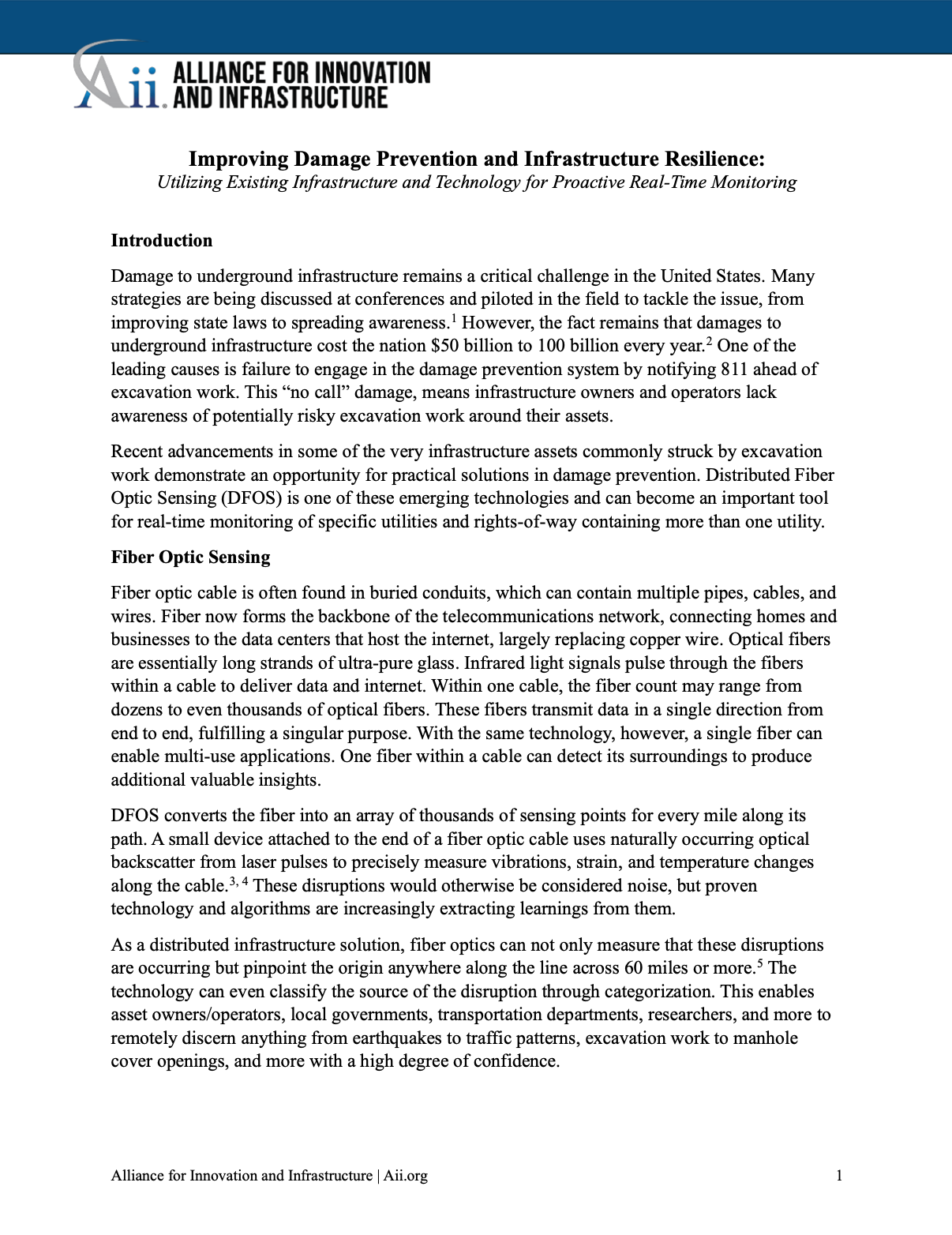
Improving Damage Prevention and Infrastructure Resilience: Utilizing Existing Infrastructure and Technology for Proactive Real-Time Monitoring March, 2025 Damage Prevention, Innovation and Technology policy-briefs damage-prevention innovation-and-technology 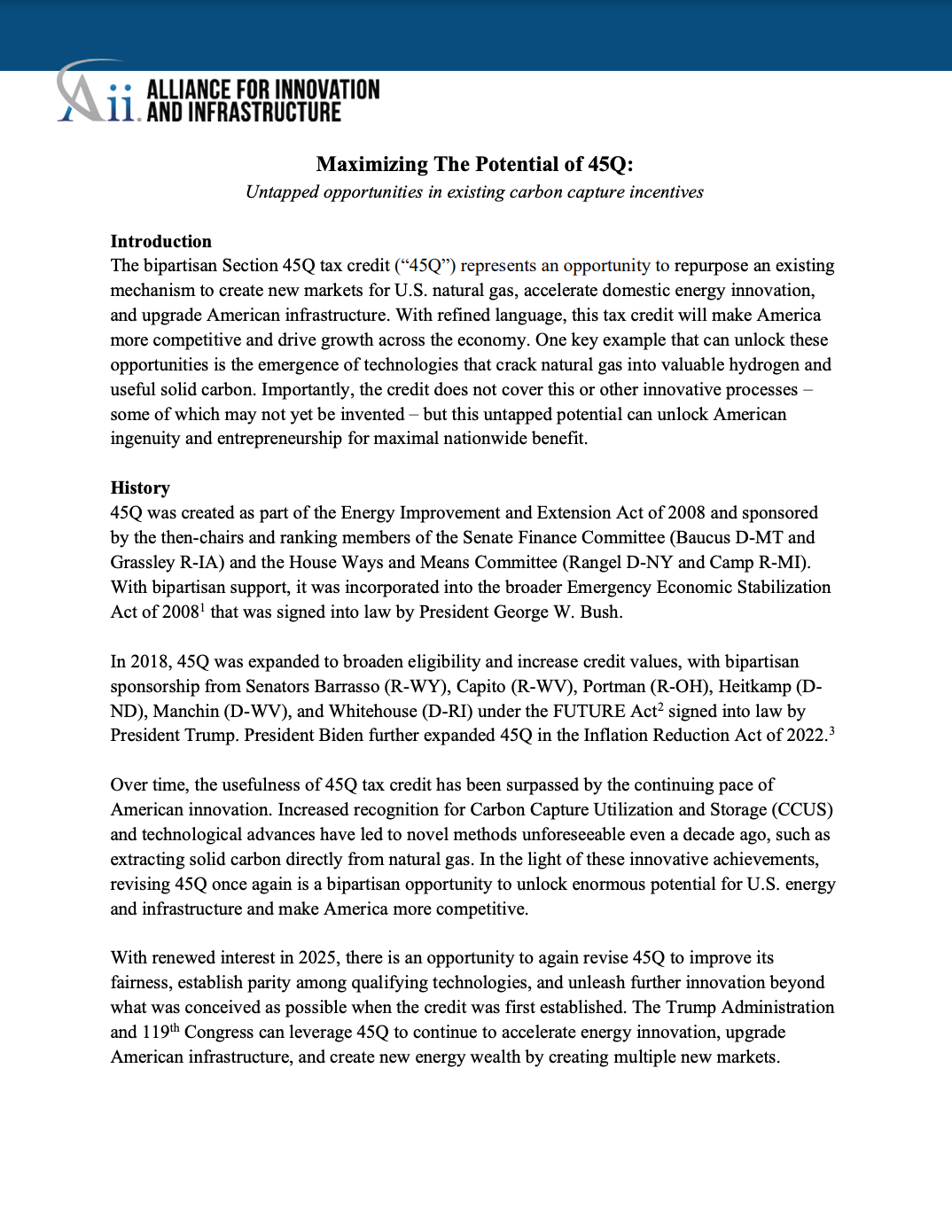
Maximizing The Potential of 45Q: Untapped opportunities in existing carbon capture incentives February, 2025 Decarbonization, Energy, Innovation and Technology, Climate and Conservation policy-briefs decarbonization energy innovation-and-technology climate-and-conservation 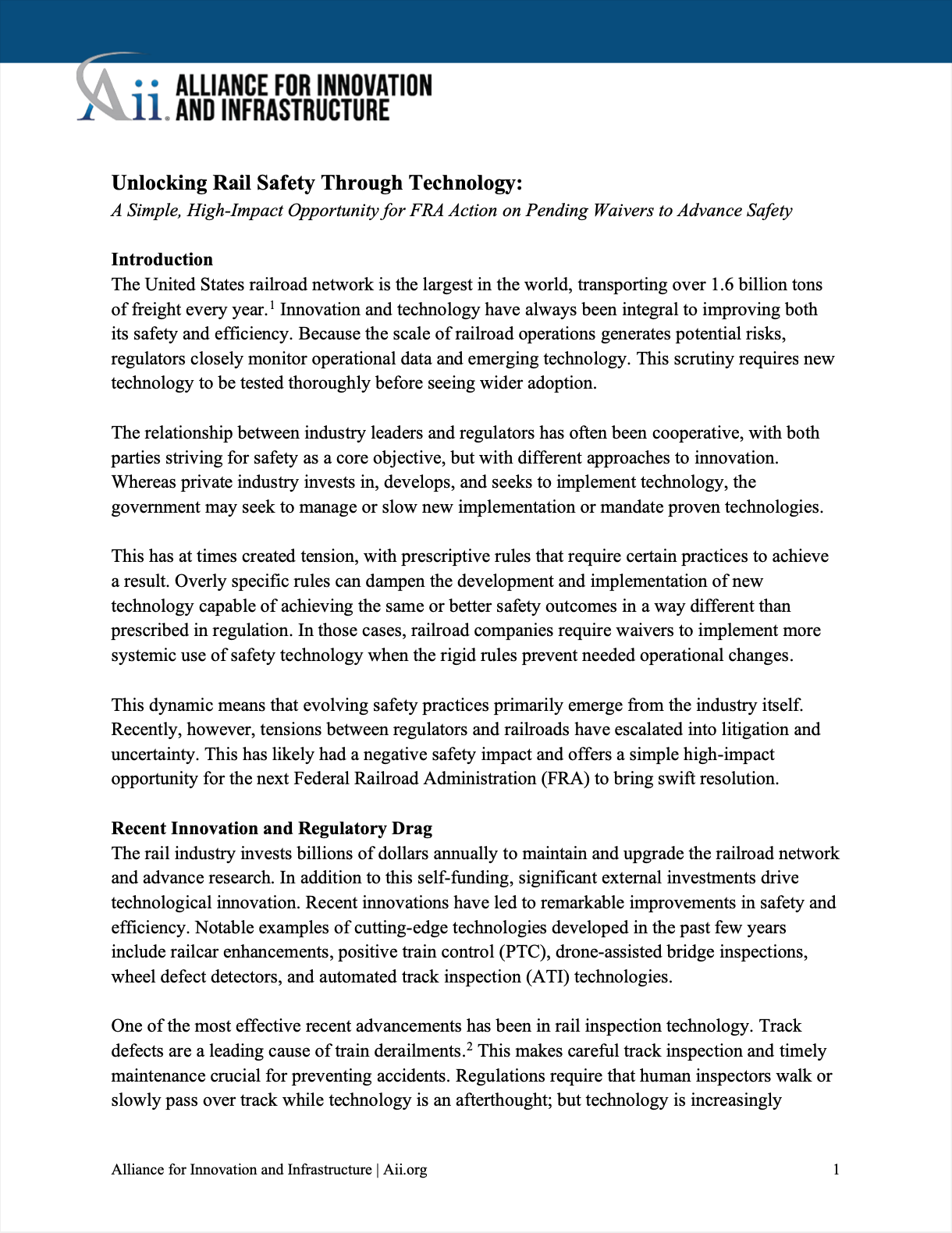
Unlocking Rail Safety Through Technology: A Simple, High-Impact Opportunity for FRA Action on Pending Waivers to Advance Safety December, 2024 Transportation, Rail, Innovation and Technology, Public Safety policy-briefs transportation rail innovation-and-technology public-safety 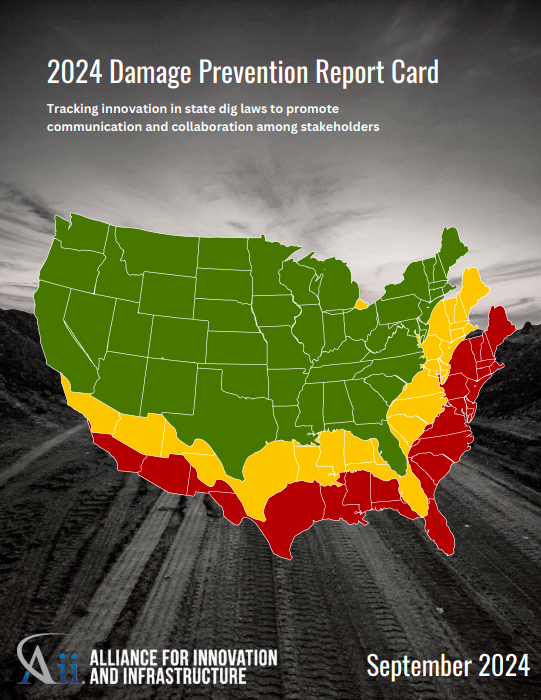
2024 Damage Prevention Report Card September, 2024 Damage Prevention, Innovation and Technology, Public Safety white-papers damage-prevention innovation-and-technology public-safety 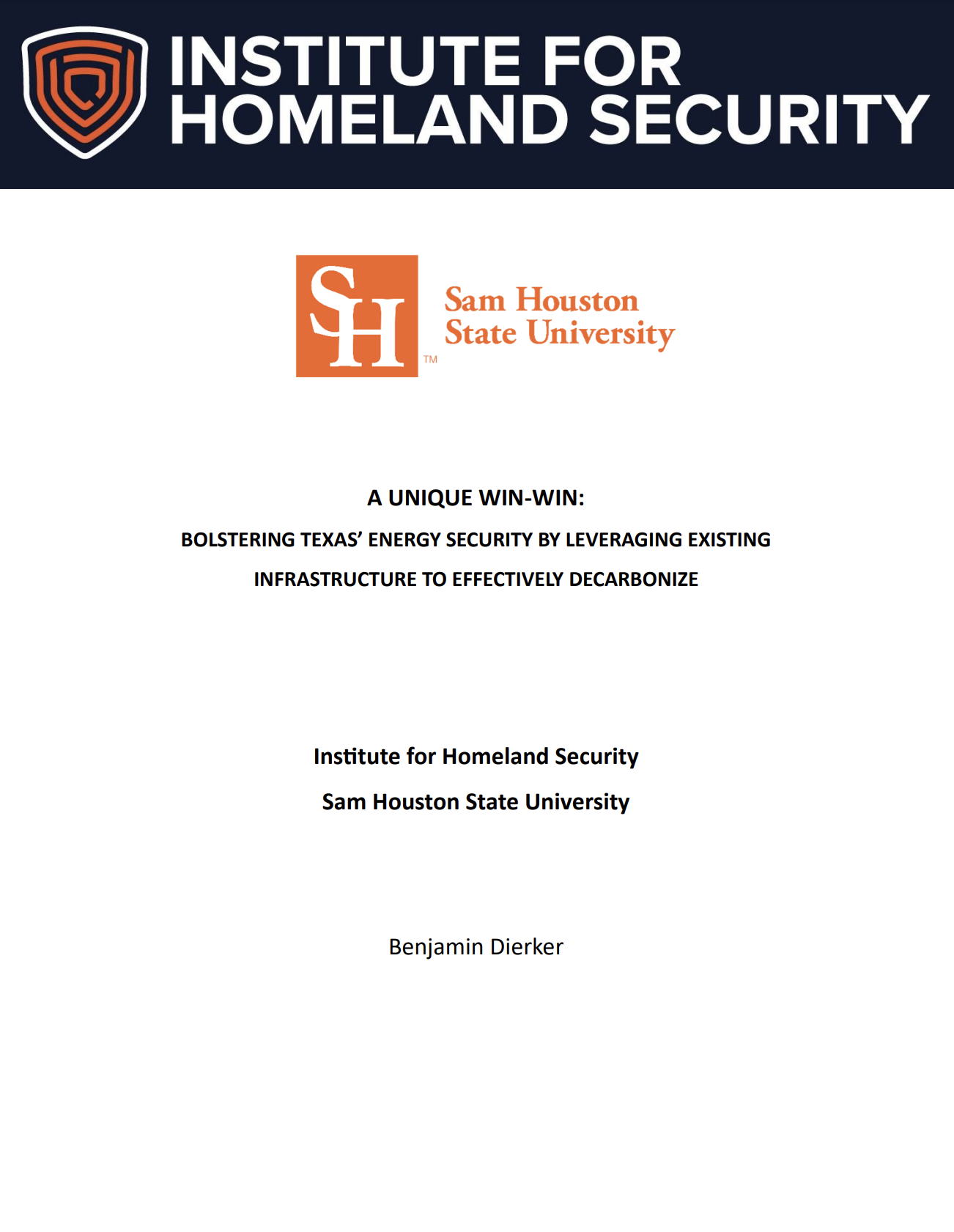
A Unique Win-Win: Bolstering Texas’ Energy Security by Leveraging Existing Infrastructure to Effectively Decarbonize June, 2024 Decarbonization, Energy, Innovation and Technology, Climate and Conservation white-papers decarbonization energy innovation-and-technology climate-and-conservation 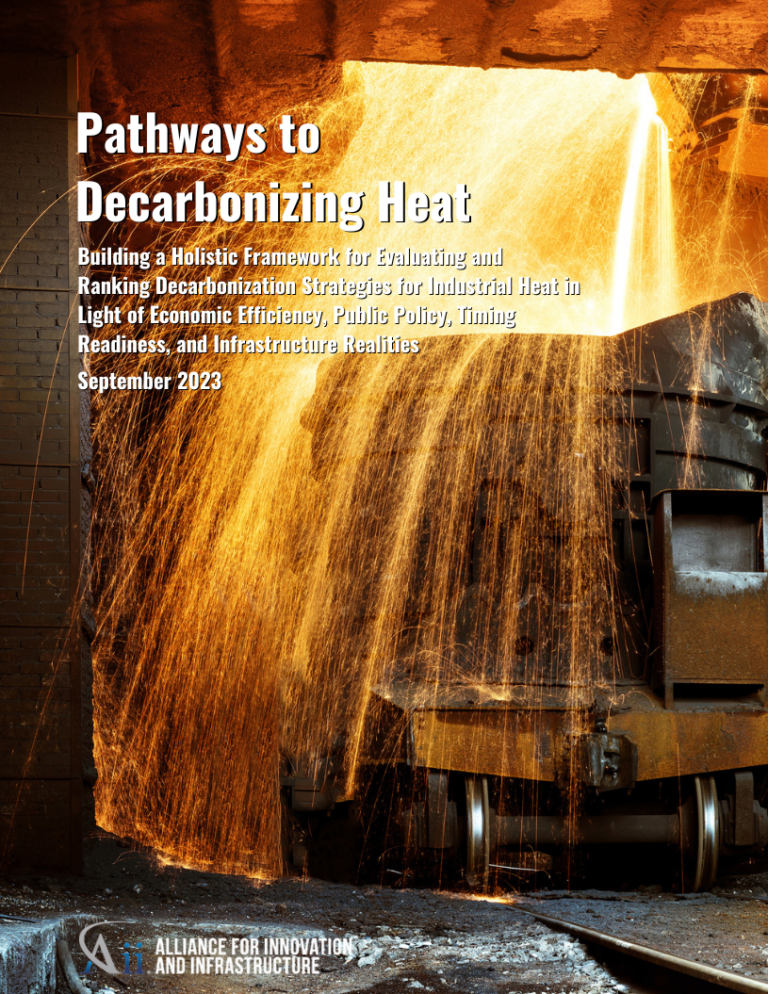
Pathways to Decarbonizing Heat: Building a Holistic Framework for Evaluating and Ranking Decarbonization Strategies for Industrial Heat in Light of Economic Efficiency, Public Policy, Timing Readiness, and Infrastructure Realities September, 2023 Decarbonization, Energy, Innovation and Technology, Climate and Conservation white-papers decarbonization energy innovation-and-technology climate-and-conservation 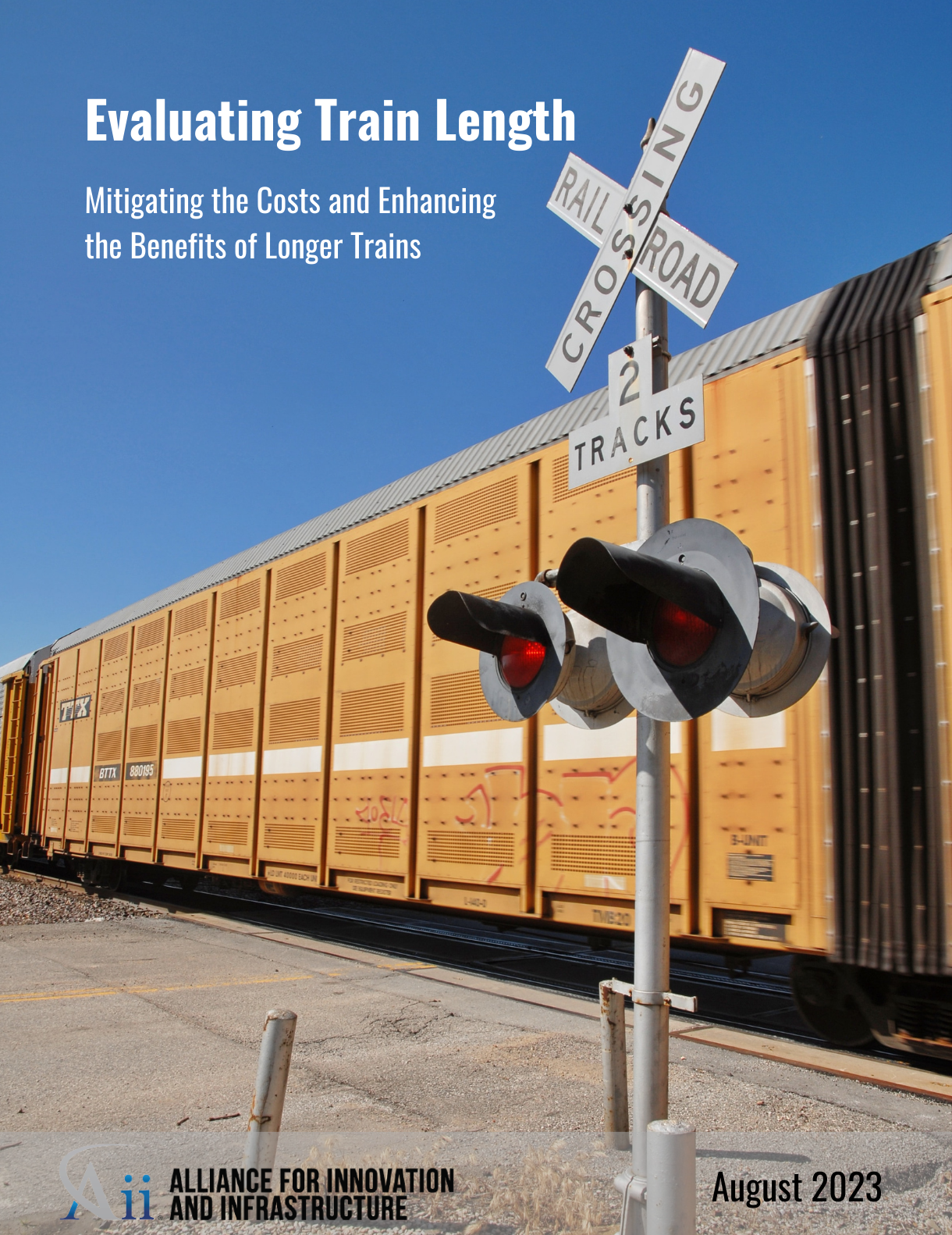
Evaluating Train Length: Mitigating the Costs and Enhancing the Benefits of Longer Trains August, 2023 Transportation, Rail, Innovation and Technology white-papers transportation rail innovation-and-technology 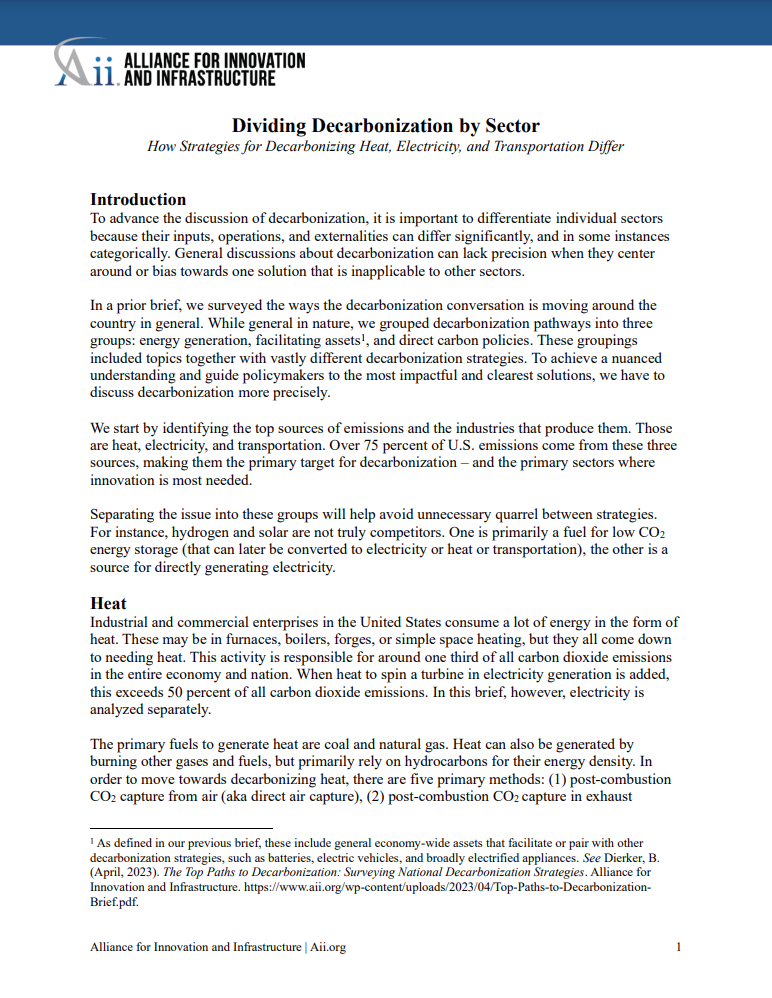
Dividing Decarbonization by Sector: How Strategies for Decarbonizing Heat, Electricity, and Transportation Differ June, 2023 Decarbonization, Energy, Innovation and Technology policy-briefs decarbonization energy innovation-and-technology 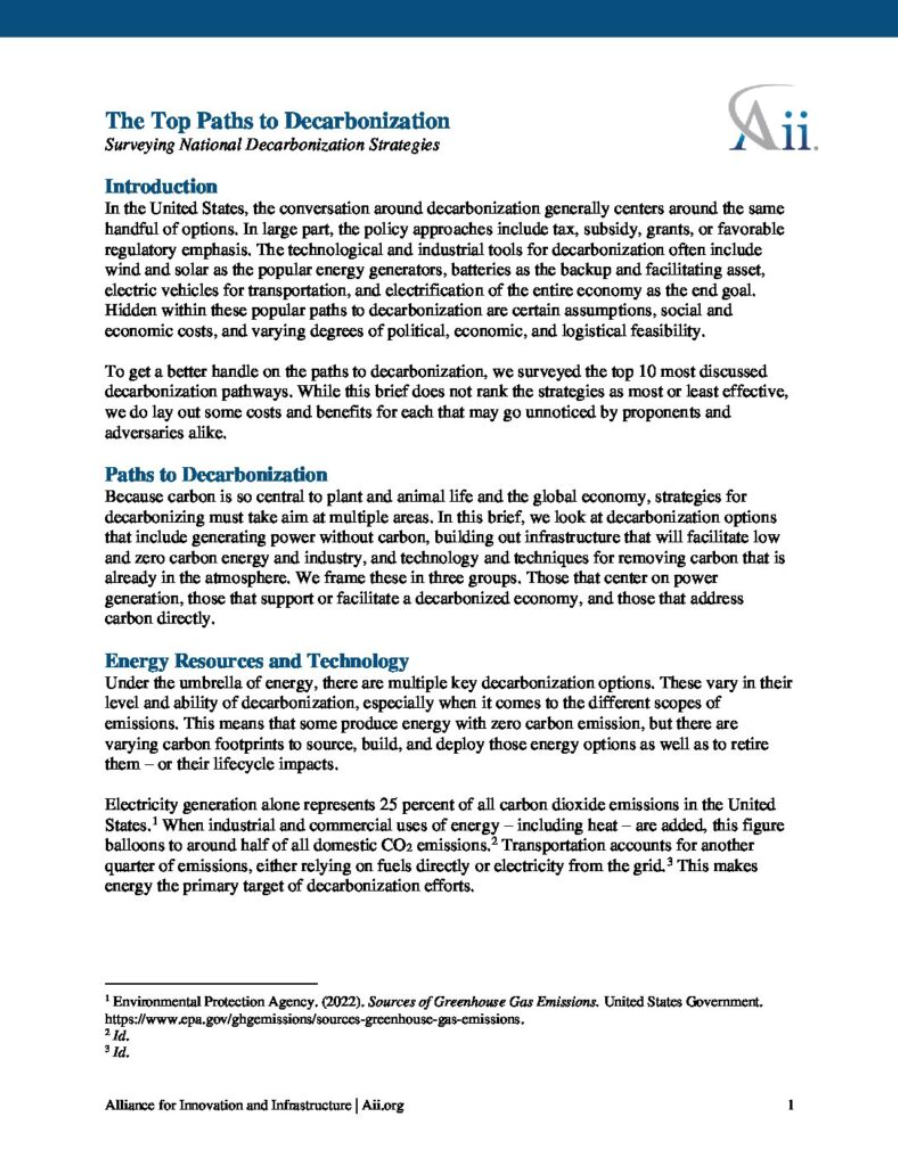
The Top Paths to Decarbonization April, 2023 Decarbonization, Innovation and Technology policy-briefs decarbonization innovation-and-technology 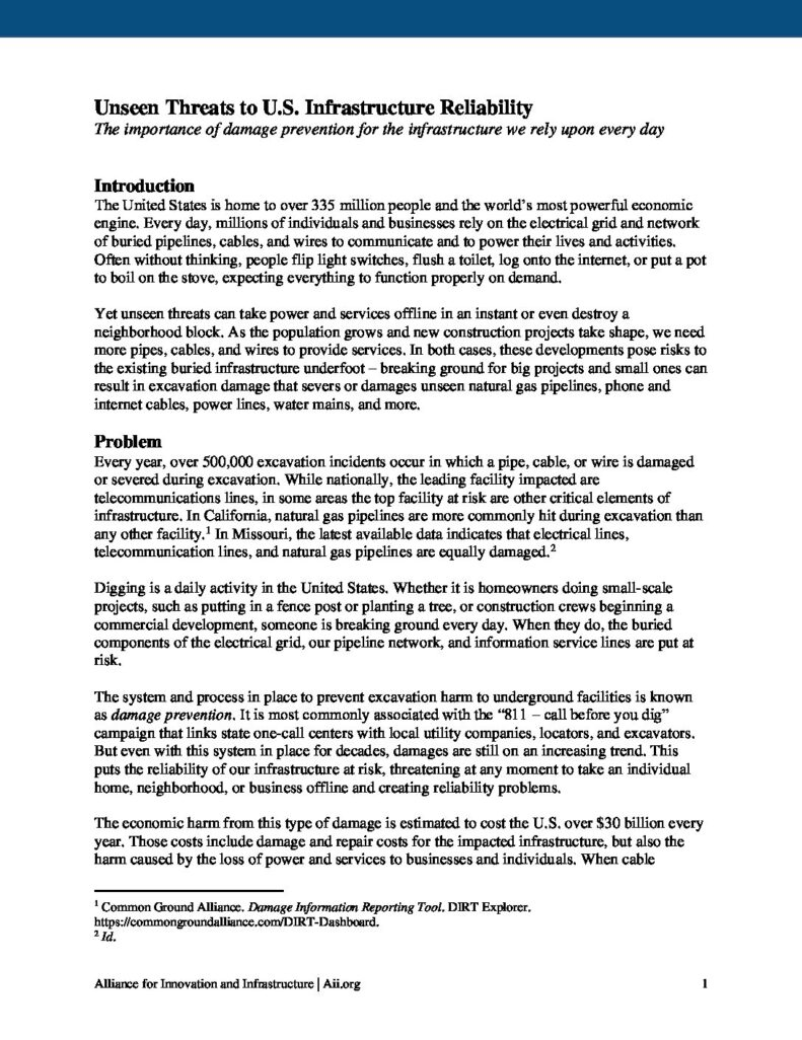
Unseen Threats to U.S. Infrastructure Reliability April, 2023 Damage Prevention, Energy, Innovation and Technology, Grid policy-briefs damage-prevention energy innovation-and-technology grid 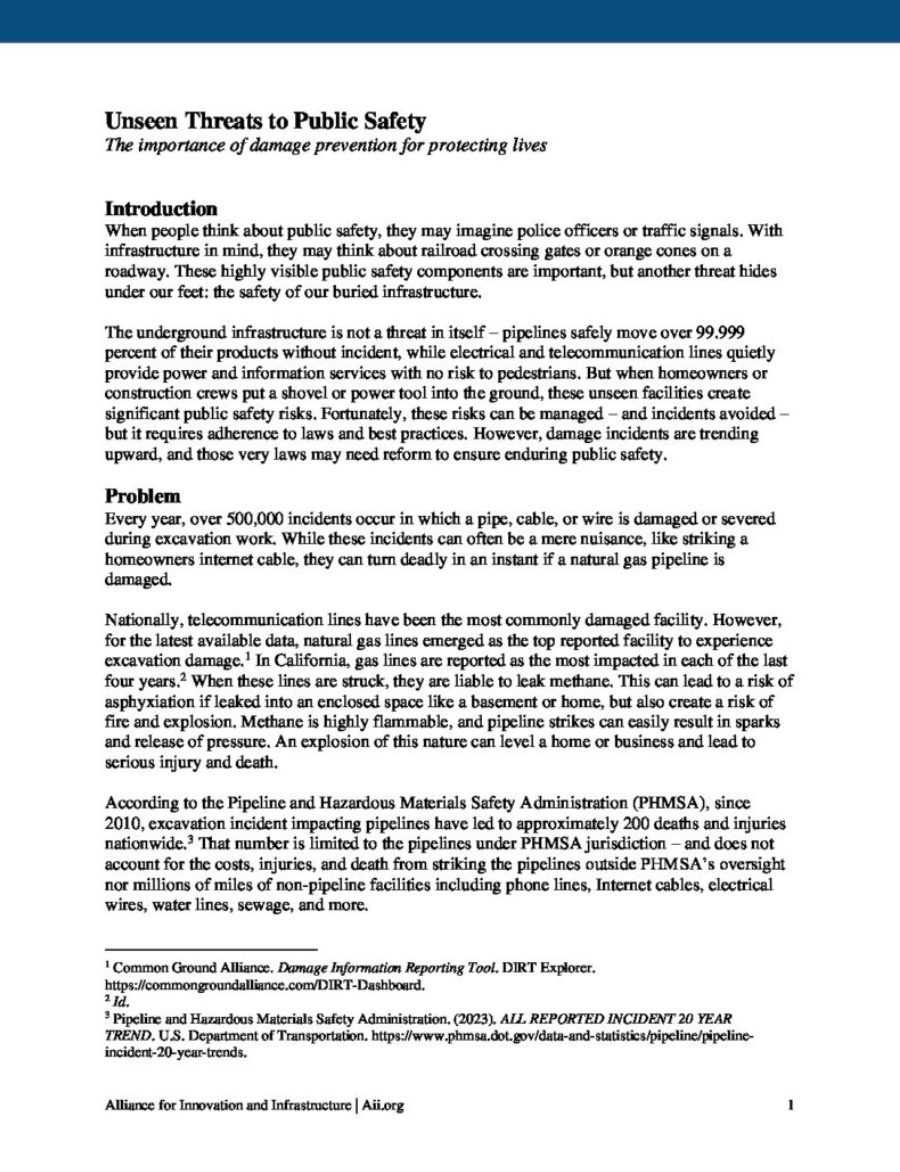
Unseen Threats to Public Safety April, 2023 Damage Prevention, Innovation and Technology policy-briefs damage-prevention innovation-and-technology 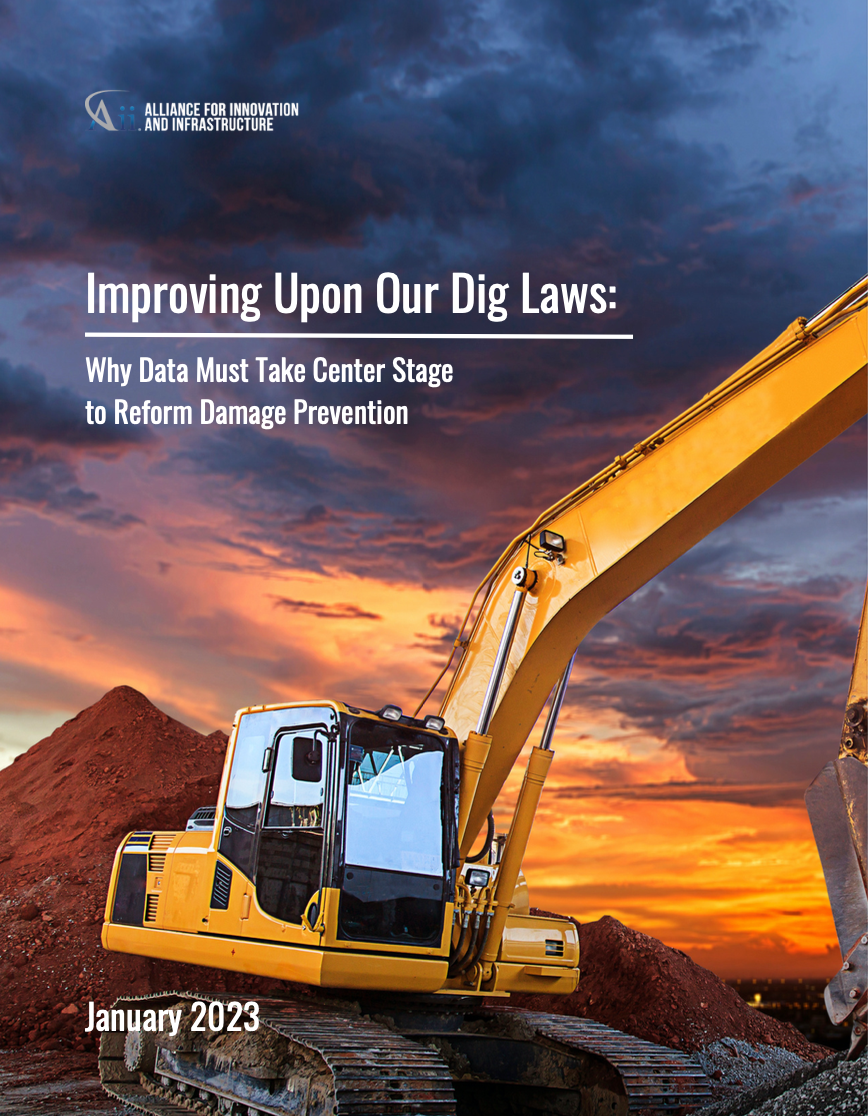
Improving Upon Our Dig Laws: Why Data Must Take Center Stage to Reform Damage Prevention January, 2023 Damage Prevention, Innovation and Technology, Public Safety white-papers damage-prevention innovation-and-technology public-safety 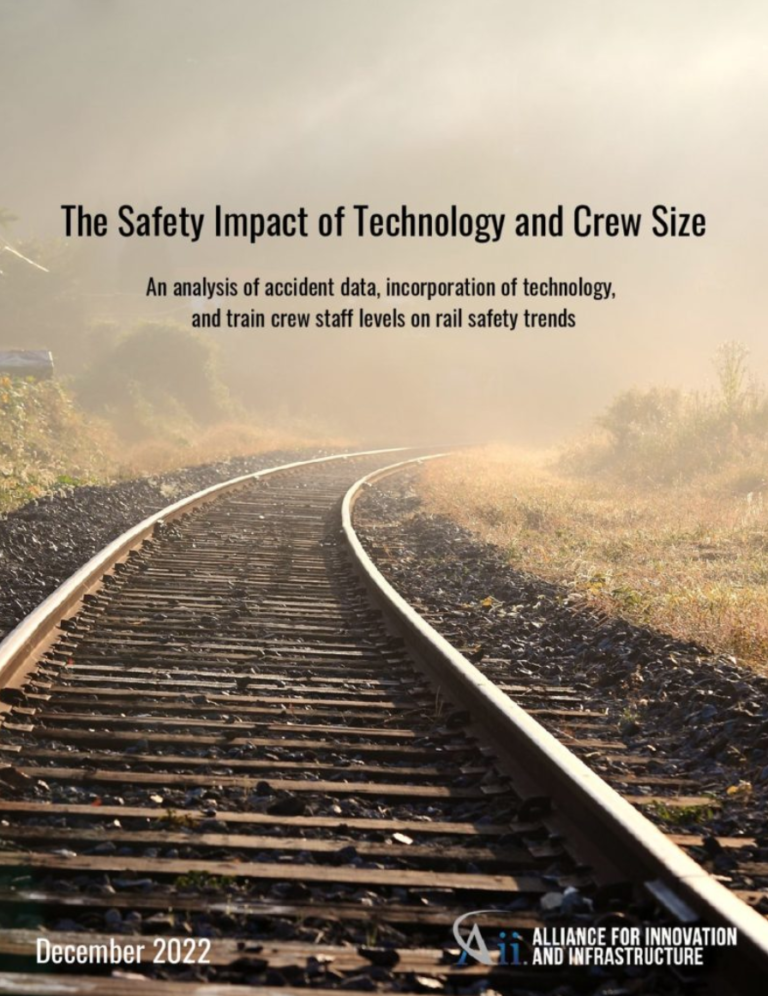
The Safety Impact of Technology and Crew Size: An Analysis of Accident Data, Incorporation of Technology, and Train Crew Staff Levels on Rail Safety Trends December, 2022 Transportation, Rail, Innovation and Technology, Public Safety white-papers transportation rail innovation-and-technology public-safety 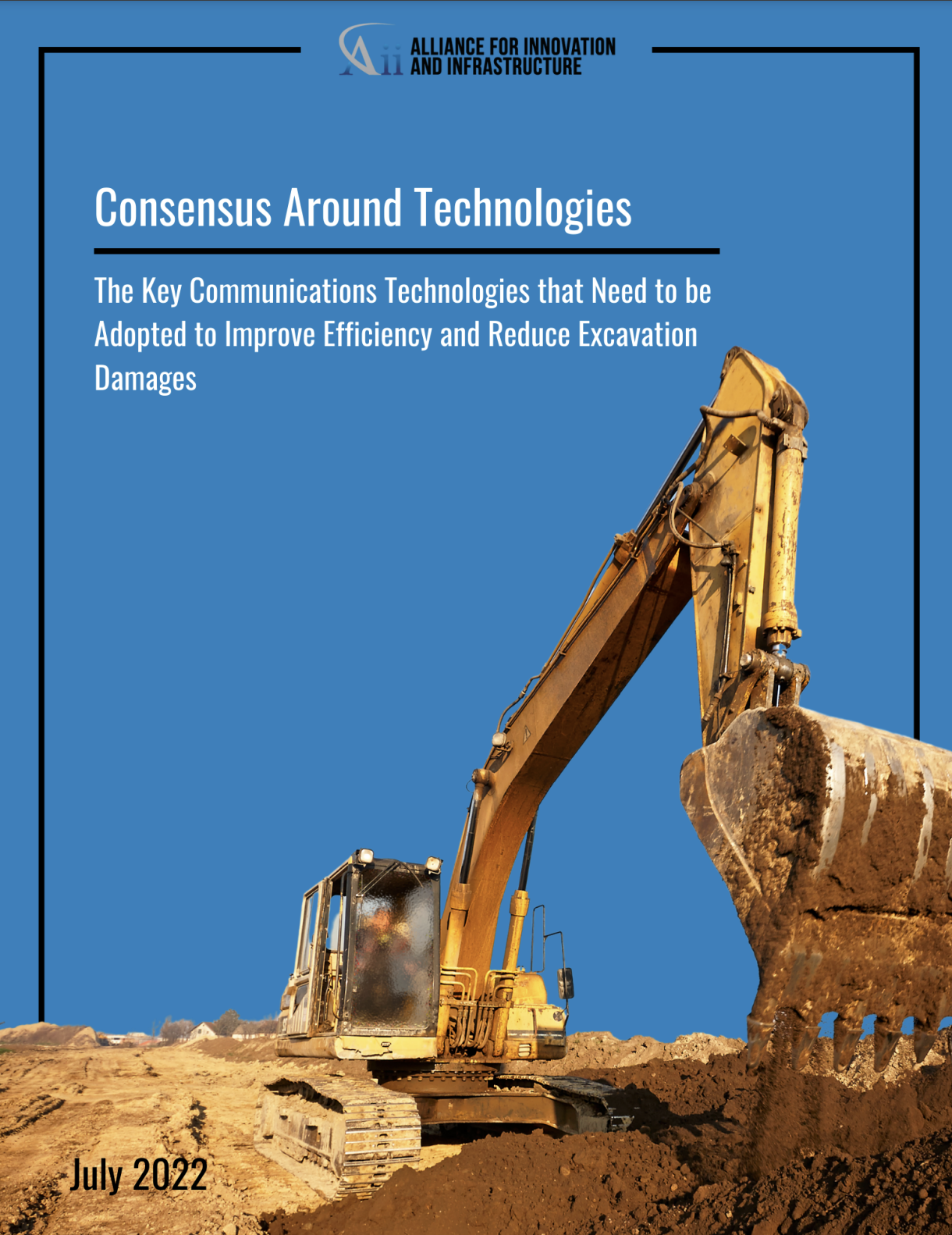
Consensus Around Technologies: The Key Communications Technologies that Need to be Adopted to Improve Efficiency and Reduce Excavation Damages July, 2022 Damage Prevention, Innovation and Technology, Public Safety white-papers damage-prevention innovation-and-technology public-safety 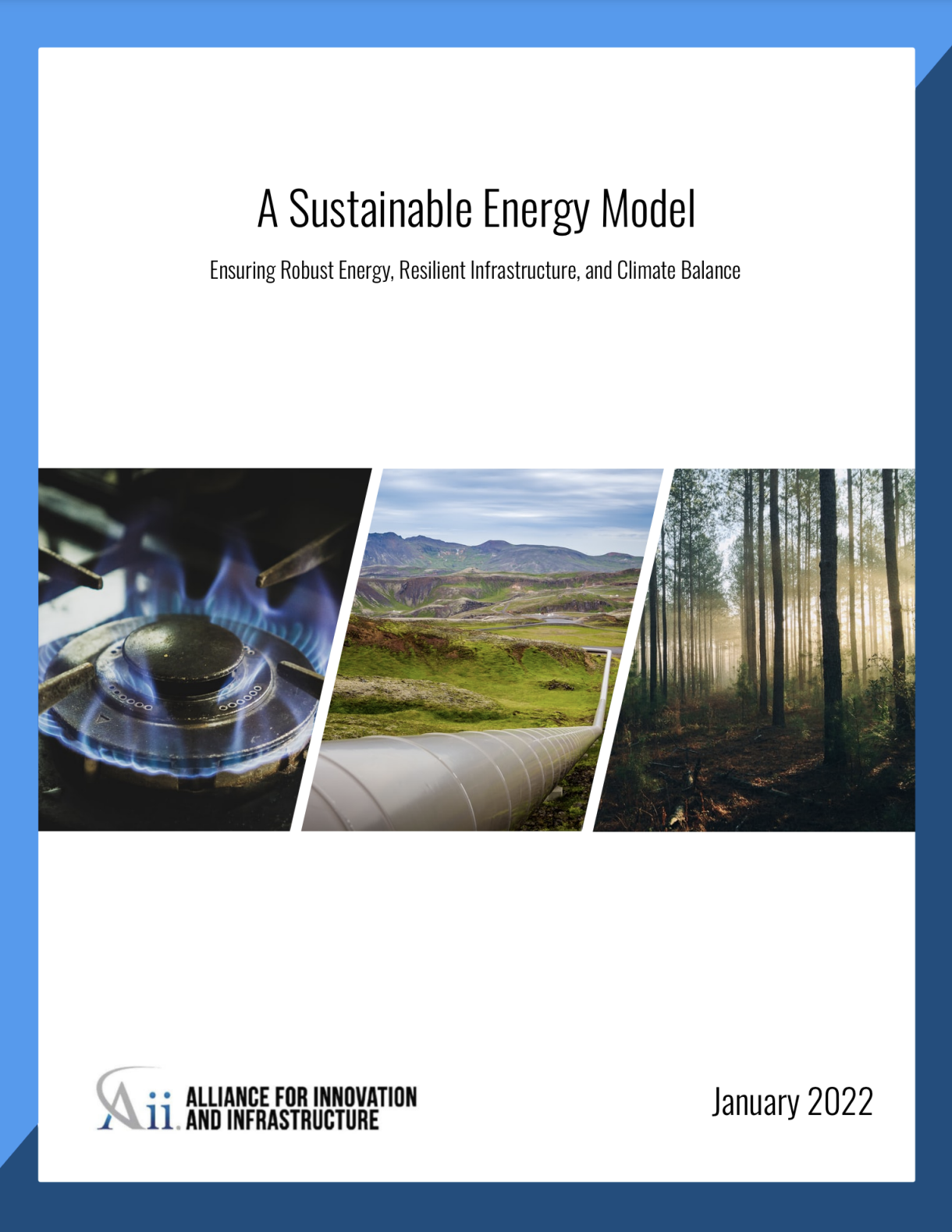
A Sustainable Energy Model January, 2022 Energy, Innovation and Technology white-papers energy innovation-and-technology 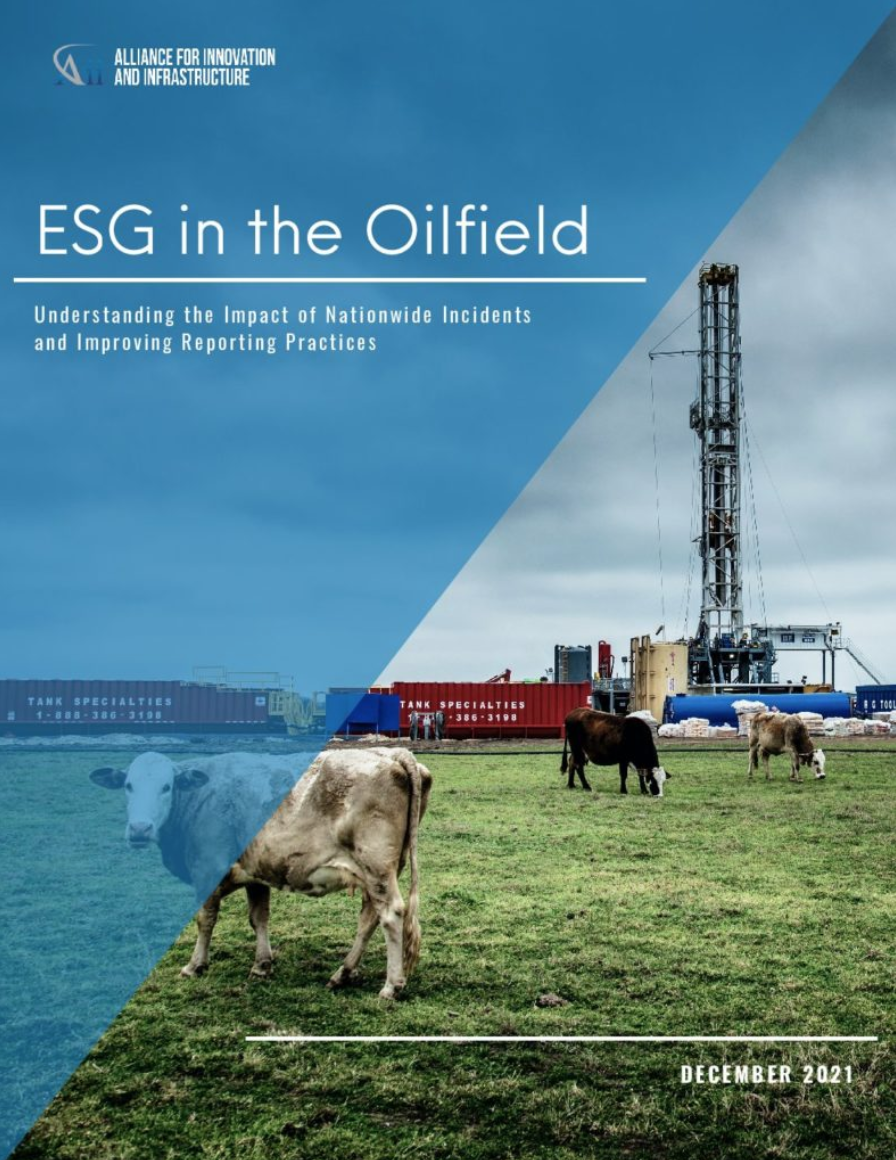
ESG in the Oilfield December, 2021 Energy, Innovation and Technology, Public Safety white-papers energy innovation-and-technology public-safety 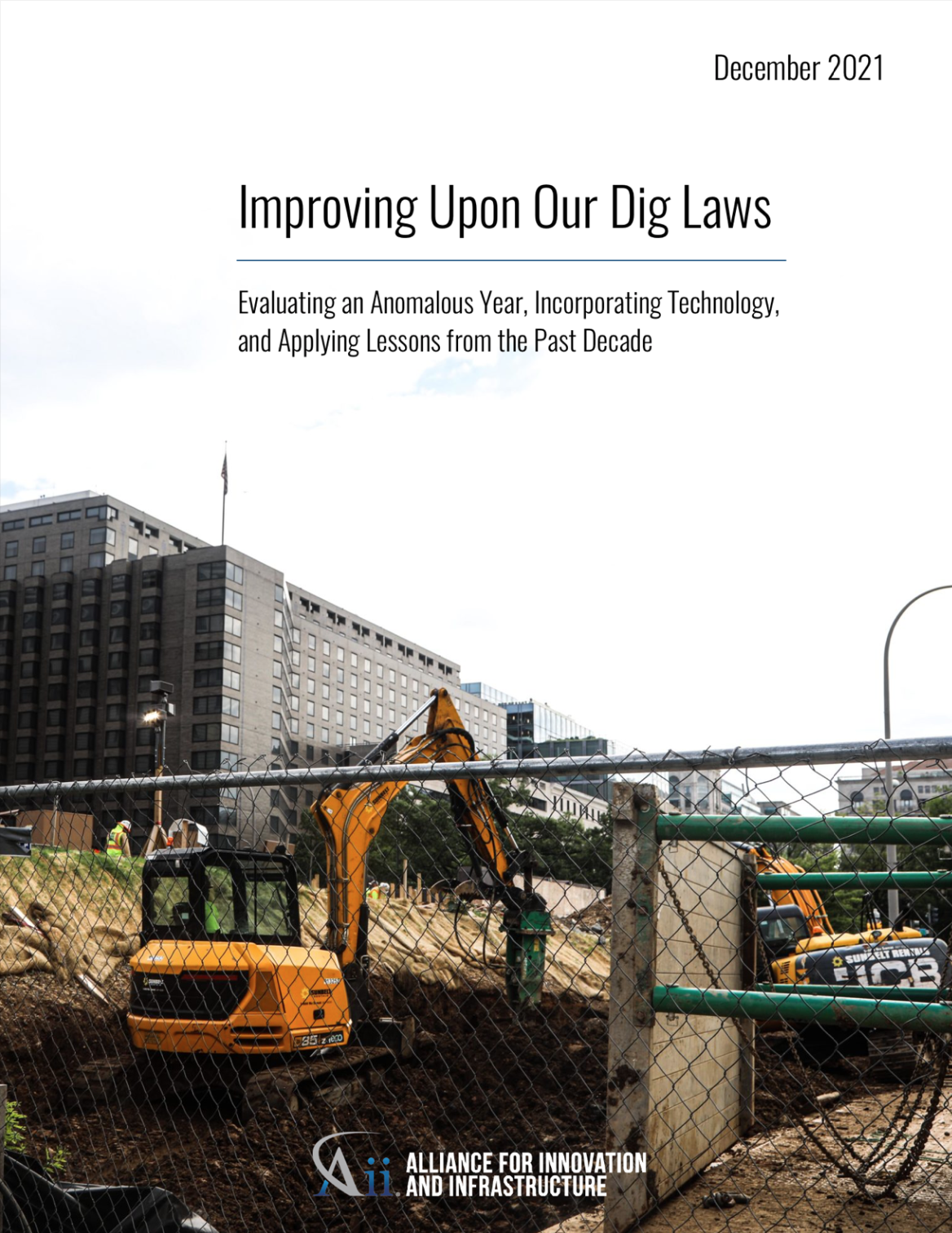
Improving Upon Our Dig Laws: Evaluating an Anomalous Year, Incorporating Technology, and Applying Lessons from the Past Decade December, 2021 Damage Prevention, Energy, Innovation and Technology, Public Safety white-papers damage-prevention energy innovation-and-technology public-safety 
America’s Top Infrastructure Challenges June, 2021 Transportation, Damage Prevention, Innovation and Technology, Public Safety policy-briefs transportation damage-prevention innovation-and-technology public-safety 
Building Back Better and Protecting What We’ve Built May, 2021 Damage Prevention, Energy, Innovation and Technology, Public Safety policy-briefs damage-prevention energy innovation-and-technology public-safety 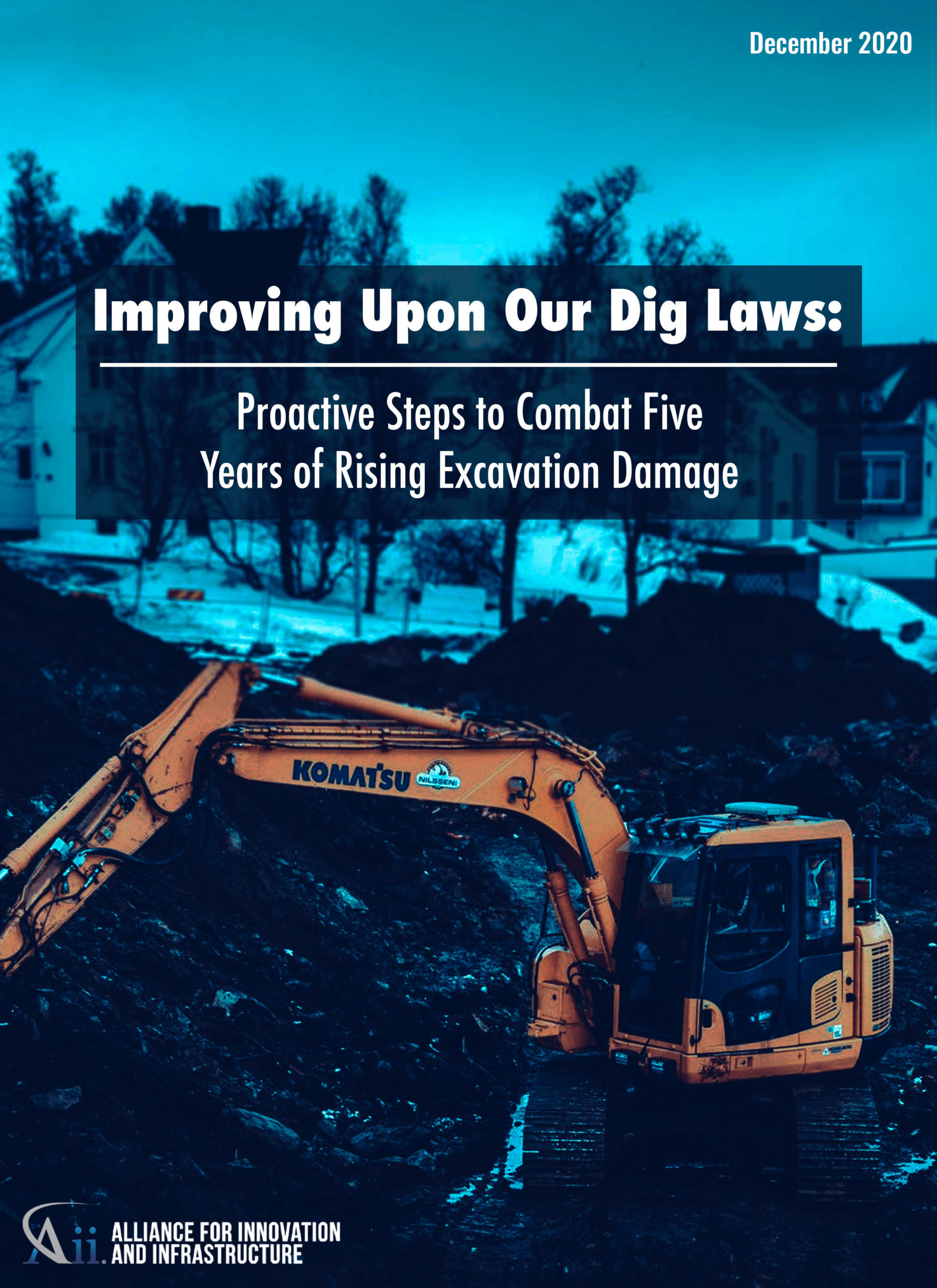
Improving Upon Our Dig Laws: Proactive Steps to Combat Five Years of Rising Excavation Damage December, 2020 Damage Prevention, Innovation and Technology, Public Safety white-papers damage-prevention innovation-and-technology public-safety 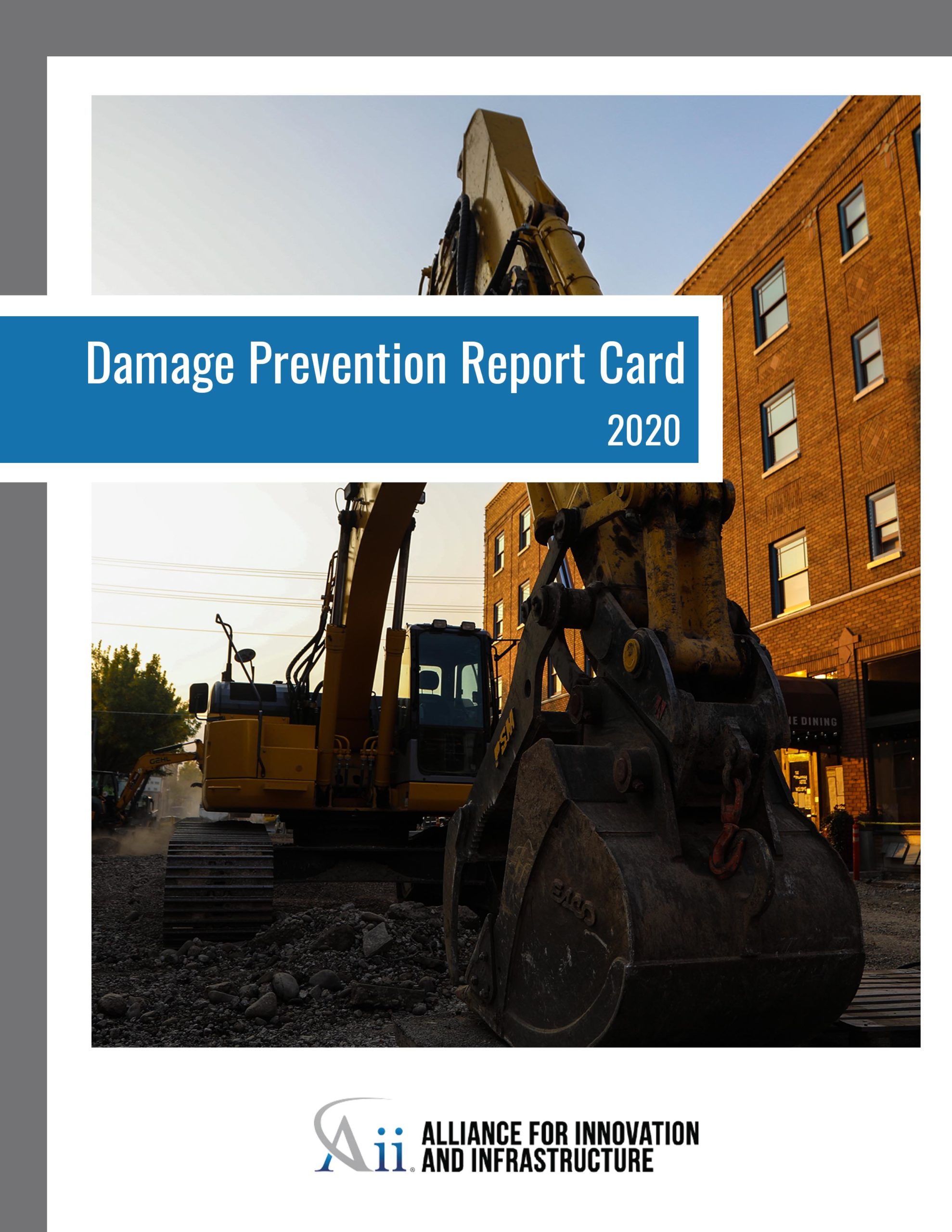
2020 Damage Prevention Report Card October, 2020 Damage Prevention, Innovation and Technology, Public Safety white-papers damage-prevention innovation-and-technology public-safety 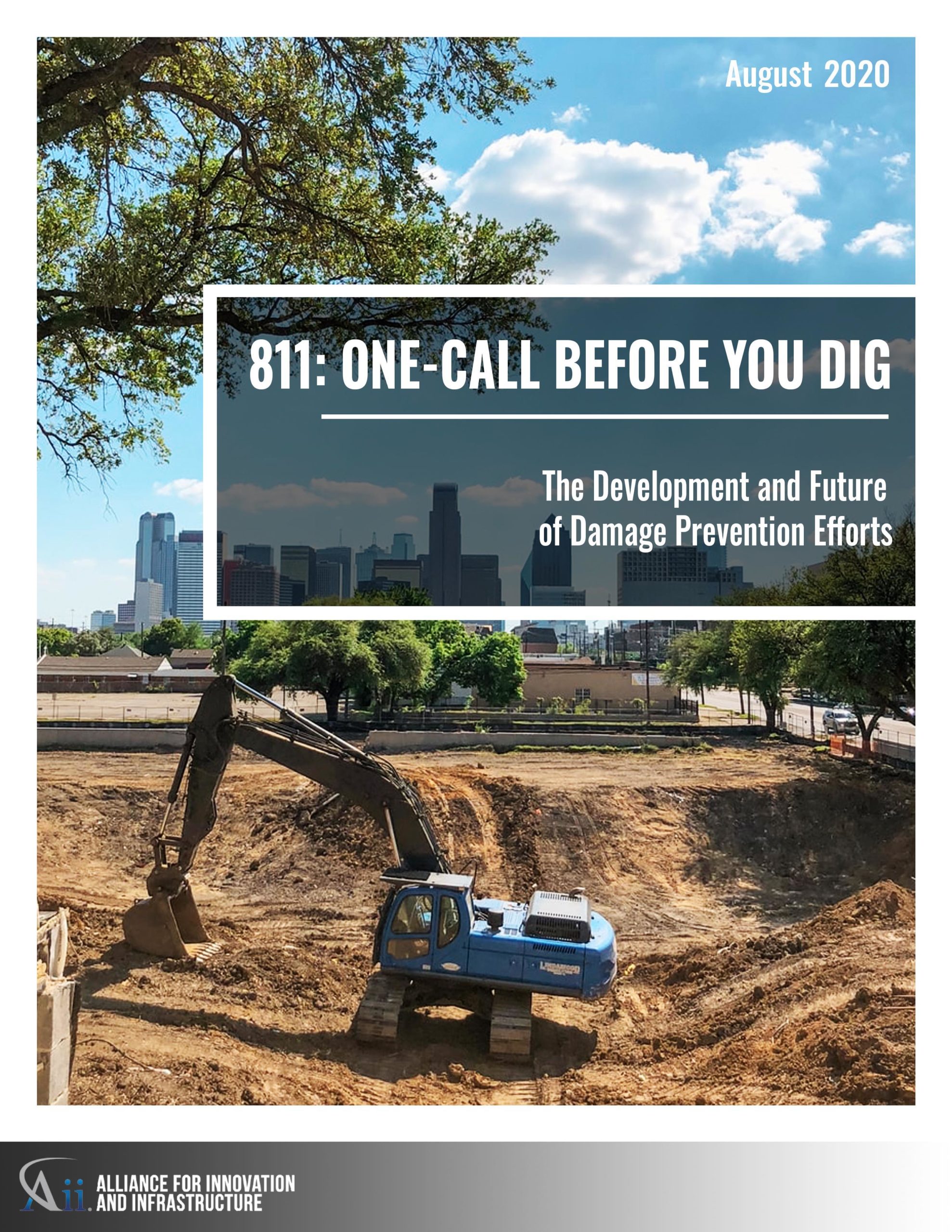
811: One-Call Before You Dig : The Development and Future of Damage Prevention Efforts August, 2020 Damage Prevention, Innovation and Technology, Public Safety white-papers damage-prevention innovation-and-technology public-safety 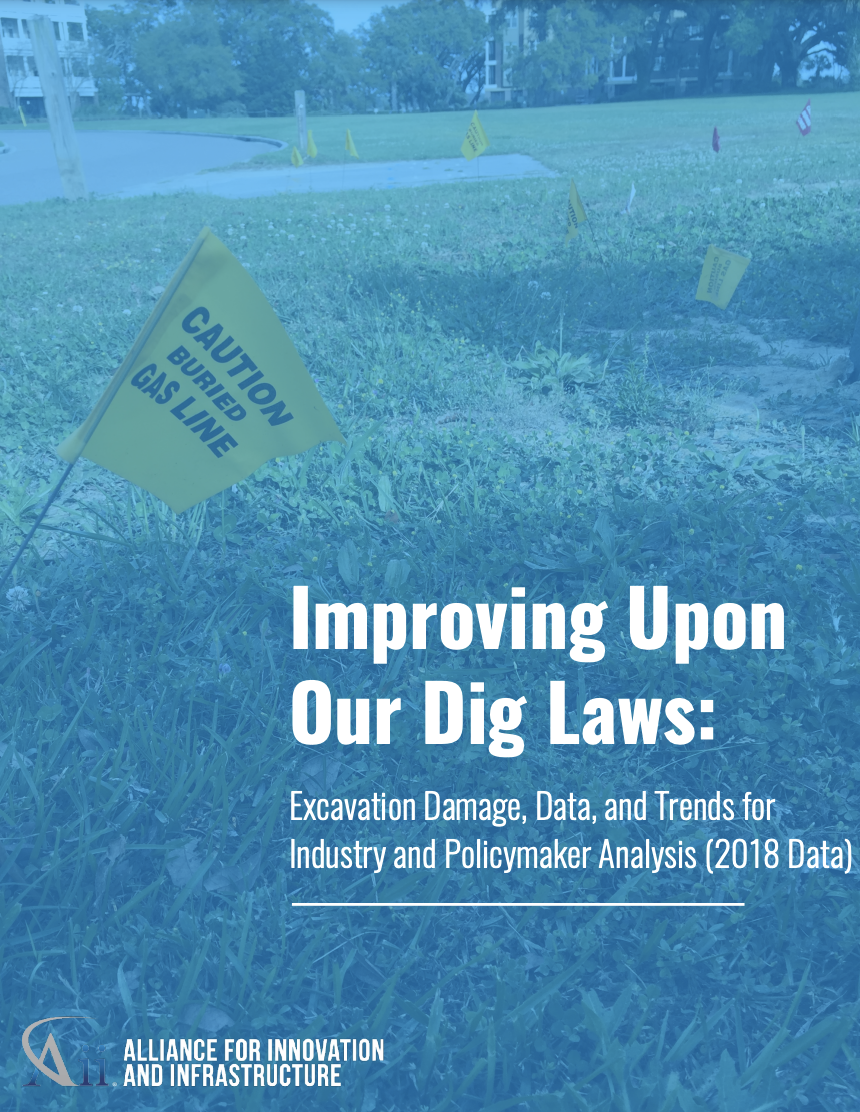
Improving Upon Our Dig Laws: Excavation Damage, Data, and Trends for Industry and Policymaker Analysis April, 2020 Damage Prevention, Innovation and Technology, Public Safety white-papers damage-prevention innovation-and-technology public-safety 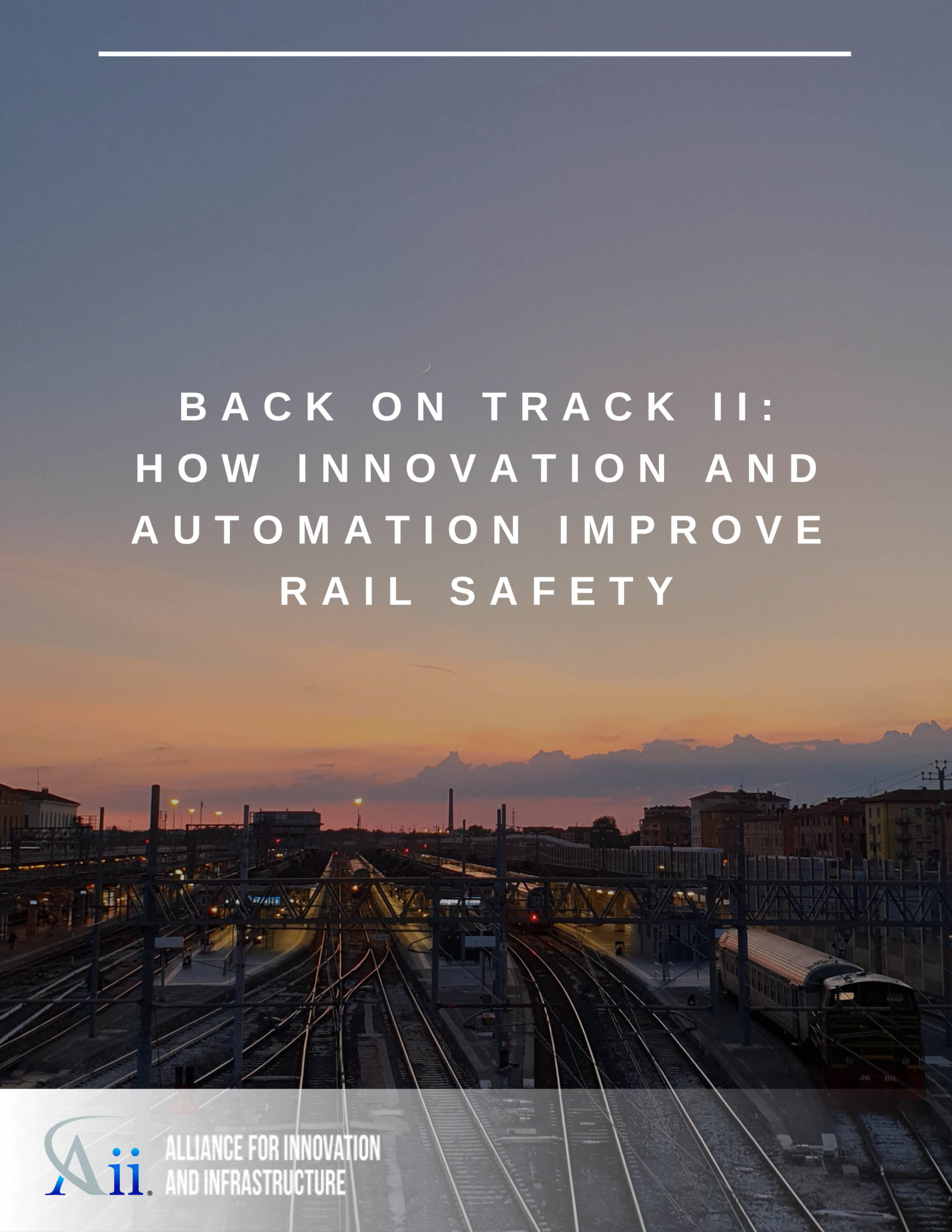
Back On Track II: How Innovation and Automation Improve Rail Safety July, 2019 Transportation, Rail, Innovation and Technology white-papers transportation rail innovation-and-technology 
The Internet of Things December, 2018 Innovation and Technology policy-briefs innovation-and-technology 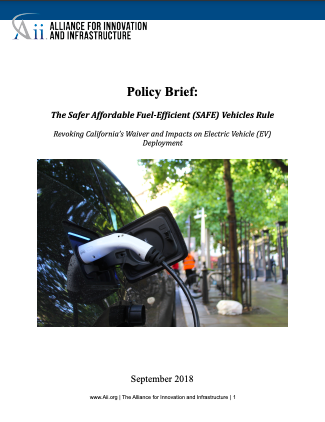
The Safer Affordable Fuel-Efficient (SAFE) Vehicle Act September, 2018 Transportation, Innovation and Technology, Climate and Conservation policy-briefs transportation innovation-and-technology climate-and-conservation 
Challenges to Increasing Non-Federal Investment in Private Infrastructure: How Can the U.S. Turn $200B into $1.5T? March, 2018 Transportation, Energy, Innovation and Technology policy-briefs transportation energy innovation-and-technology 
Policy Brief: 5G Primer October, 2017 Innovation and Technology policy-briefs innovation-and-technology 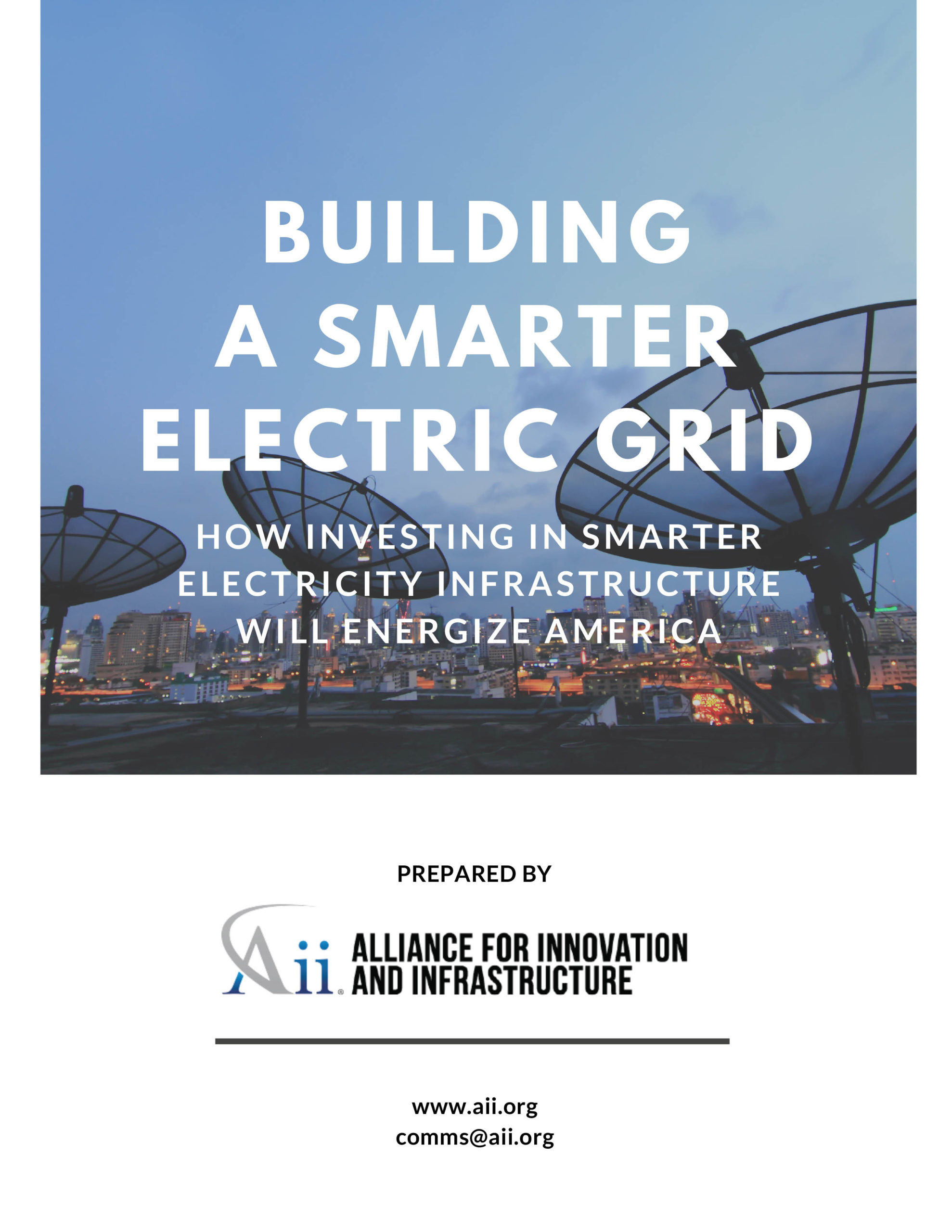
Building a Smarter Electric Grid: How Investing In Smarter Electricity Will Energize America July, 2017 Energy, Innovation and Technology, Transmission, Grid white-papers energy innovation-and-technology transmission grid 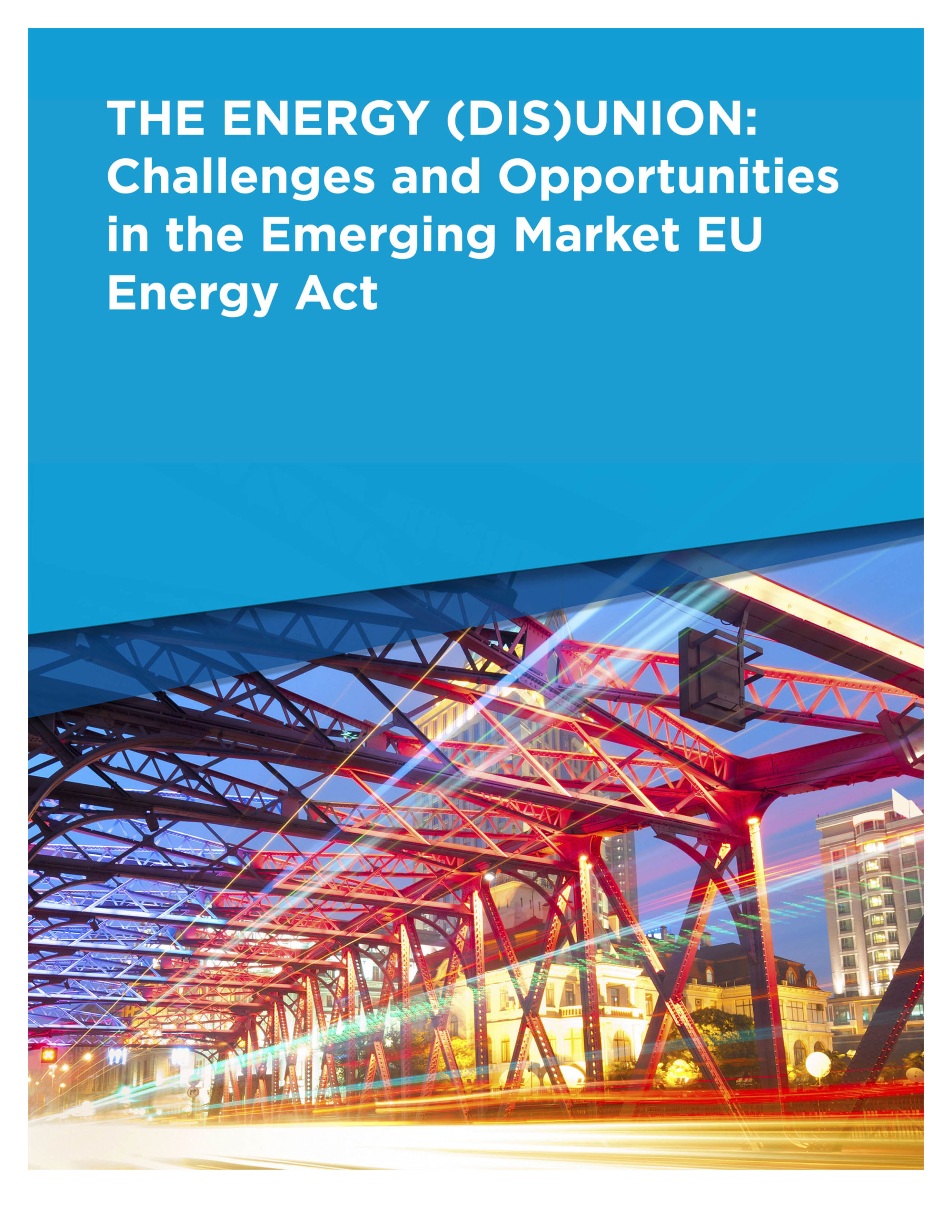
The Energy (Dis)Union: Challenges and Opportunities in the Emerging Market (ITALIAN) October, 2016 Energy, Innovation and Technology, Economics, Transmission, Grid white-papers energy innovation-and-technology economics transmission grid 
The Energy (Dis)Union: Challenges and Opportunities in the Emerging Market (POLISH) October, 2016 Energy, Innovation and Technology, Economics, Transmission, Grid white-papers energy innovation-and-technology economics transmission grid 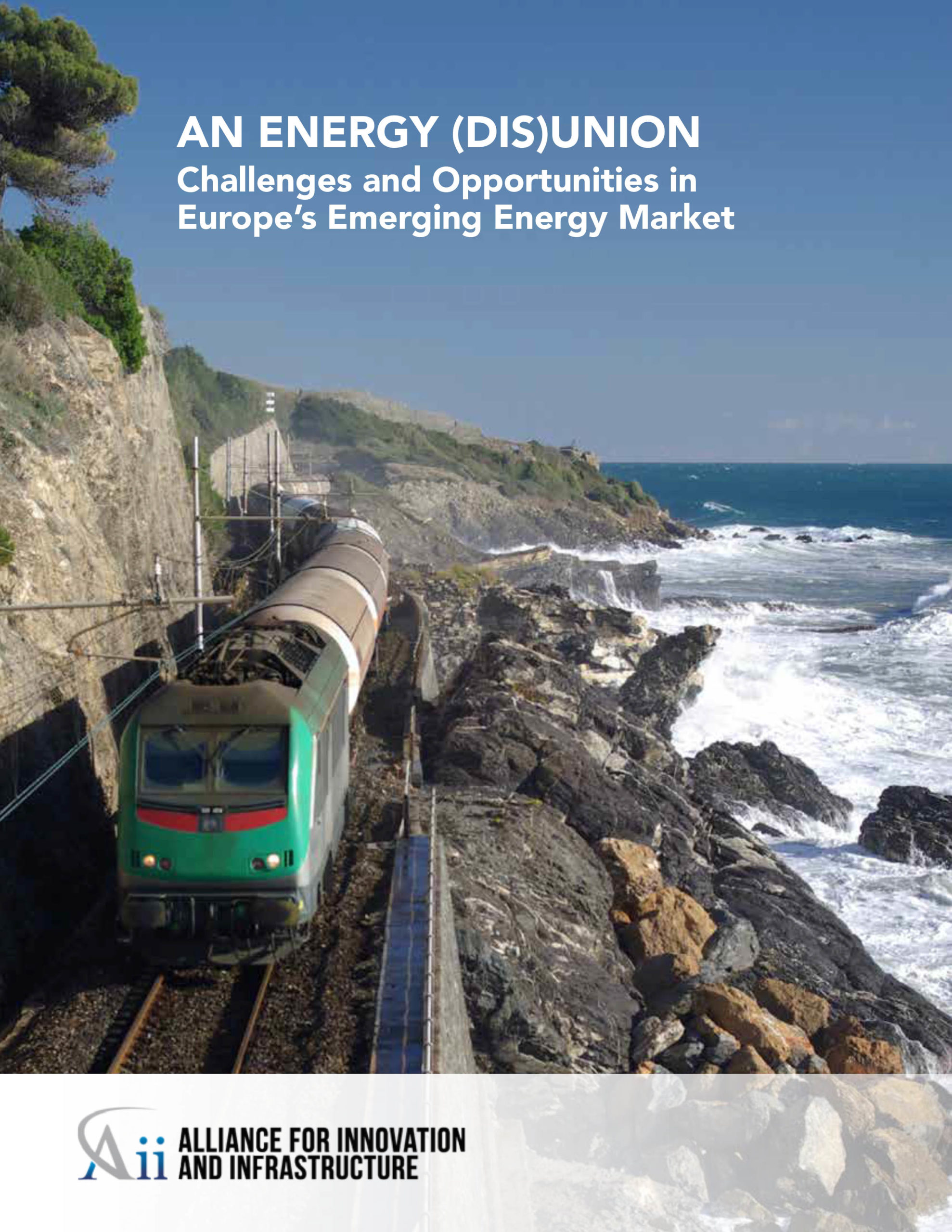
The Energy (Dis)Union: Challenges and Opportunities in the Emerging Market October, 2016 Energy, Innovation and Technology, Economics, Transmission, Grid white-papers energy innovation-and-technology economics transmission grid 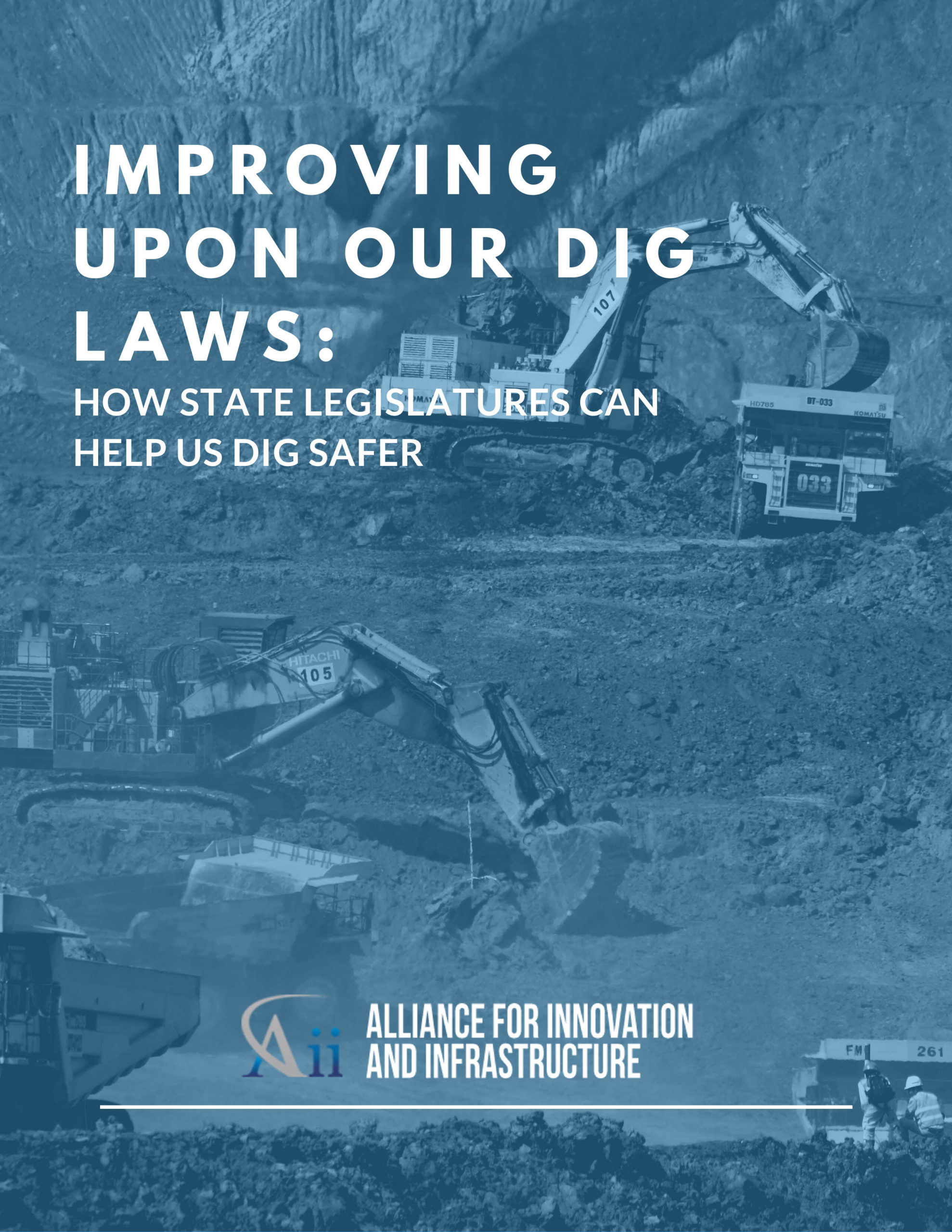
Improving Upon Our Dig Laws: How State Legislatures Can Help Us Dig Safer August, 2016 Damage Prevention, Innovation and Technology, Public Safety white-papers damage-prevention innovation-and-technology public-safety 
Infrastructure Resiliency: Preventing Damage Through Critical Investments July, 2016 Transportation, Energy, Innovation and Technology policy-briefs transportation energy innovation-and-technology 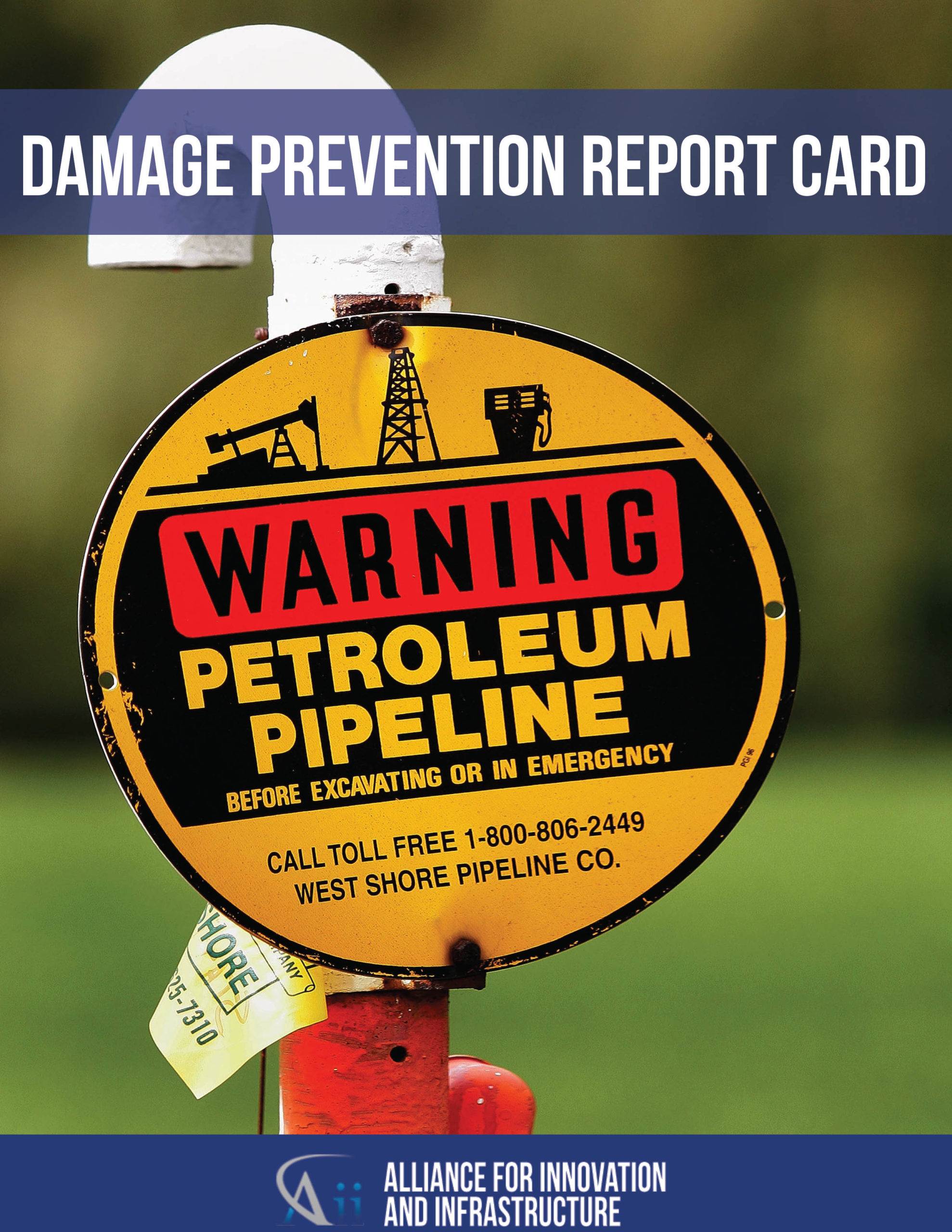
Damage Prevention Report Card June, 2016 Damage Prevention, Innovation and Technology, Public Safety white-papers damage-prevention innovation-and-technology public-safety 
The Somewhat Turbulent Journey of Delivery Drones April, 2016 Transportation, Innovation and Technology policy-briefs transportation innovation-and-technology 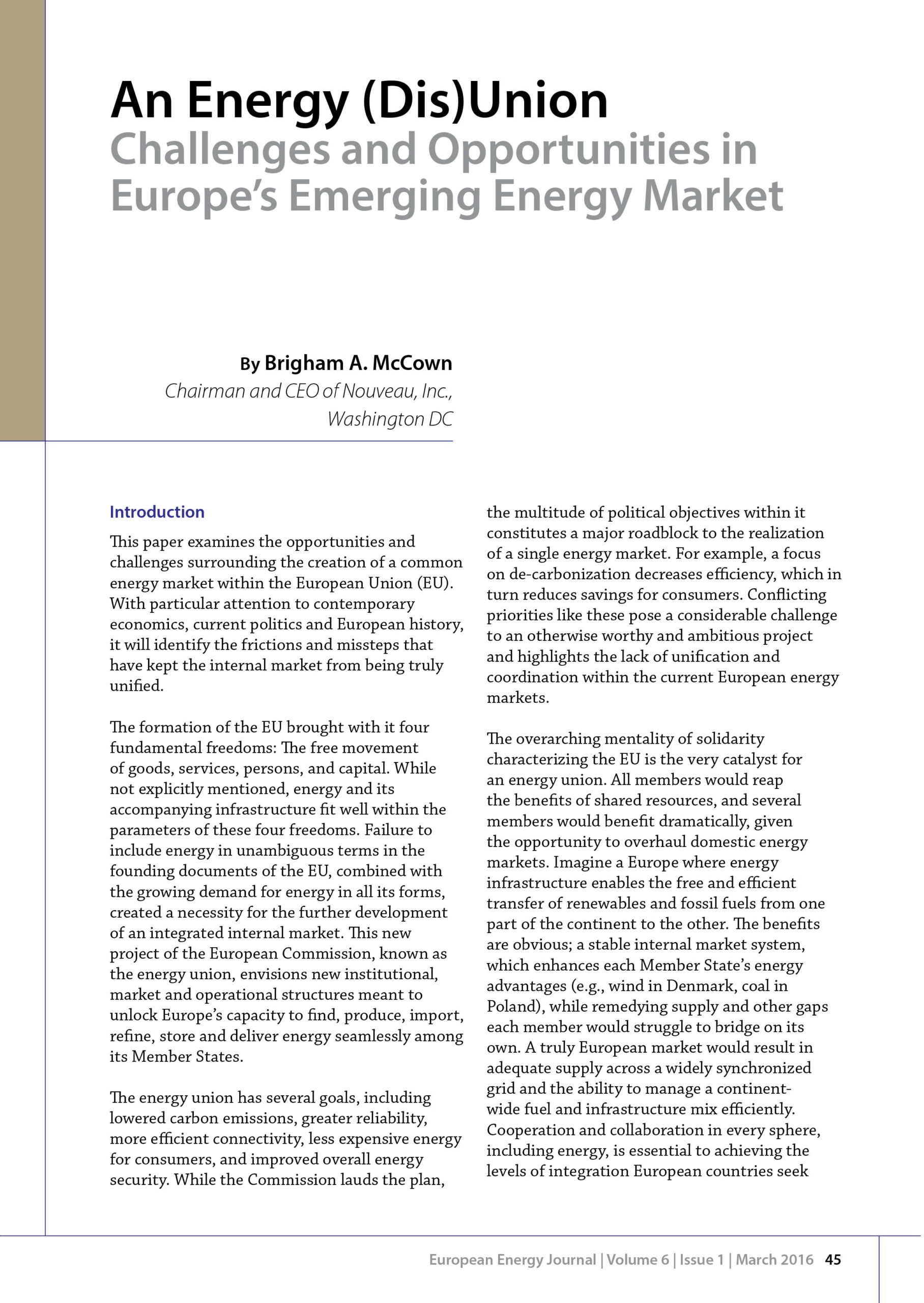
Aii Chairman Publishes Report in European Energy Journal March, 2016 Energy, Innovation and Technology, Economics white-papers energy innovation-and-technology economics 
Are P3’s a Practical Tool to Tackle the Growing Infrastructure Debt? February, 2016 Transportation, Energy, Innovation and Technology, Economics policy-briefs transportation energy innovation-and-technology economics 
Driverless Cars February, 2016 Transportation, Innovation and Technology policy-briefs transportation innovation-and-technology 
Intelligent Roads January, 2016 Transportation, Innovation and Technology policy-briefs transportation innovation-and-technology 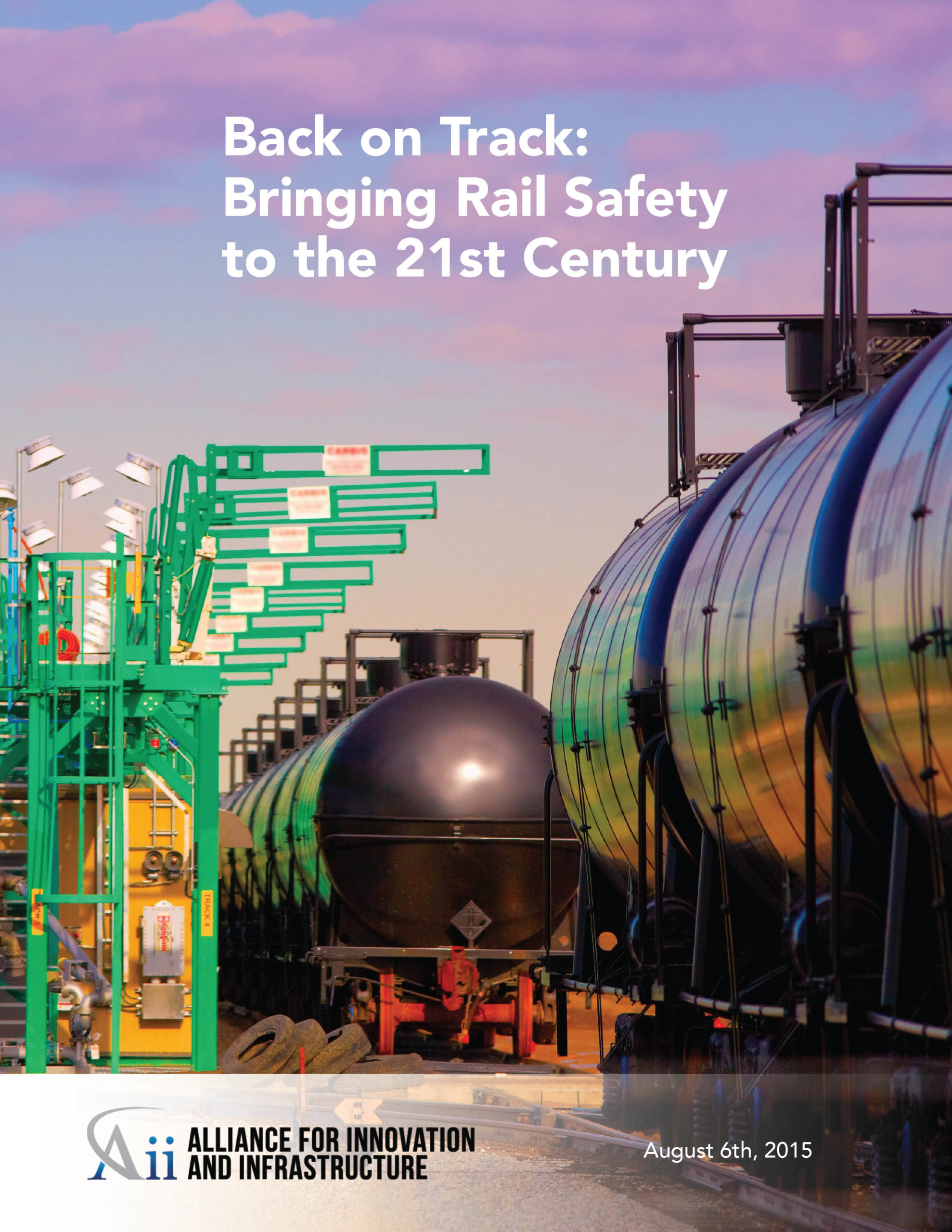
Back on Track: Bringing Rail Safety into the 21st Century August, 2015 Transportation, Rail, Innovation and Technology white-papers transportation rail innovation-and-technology 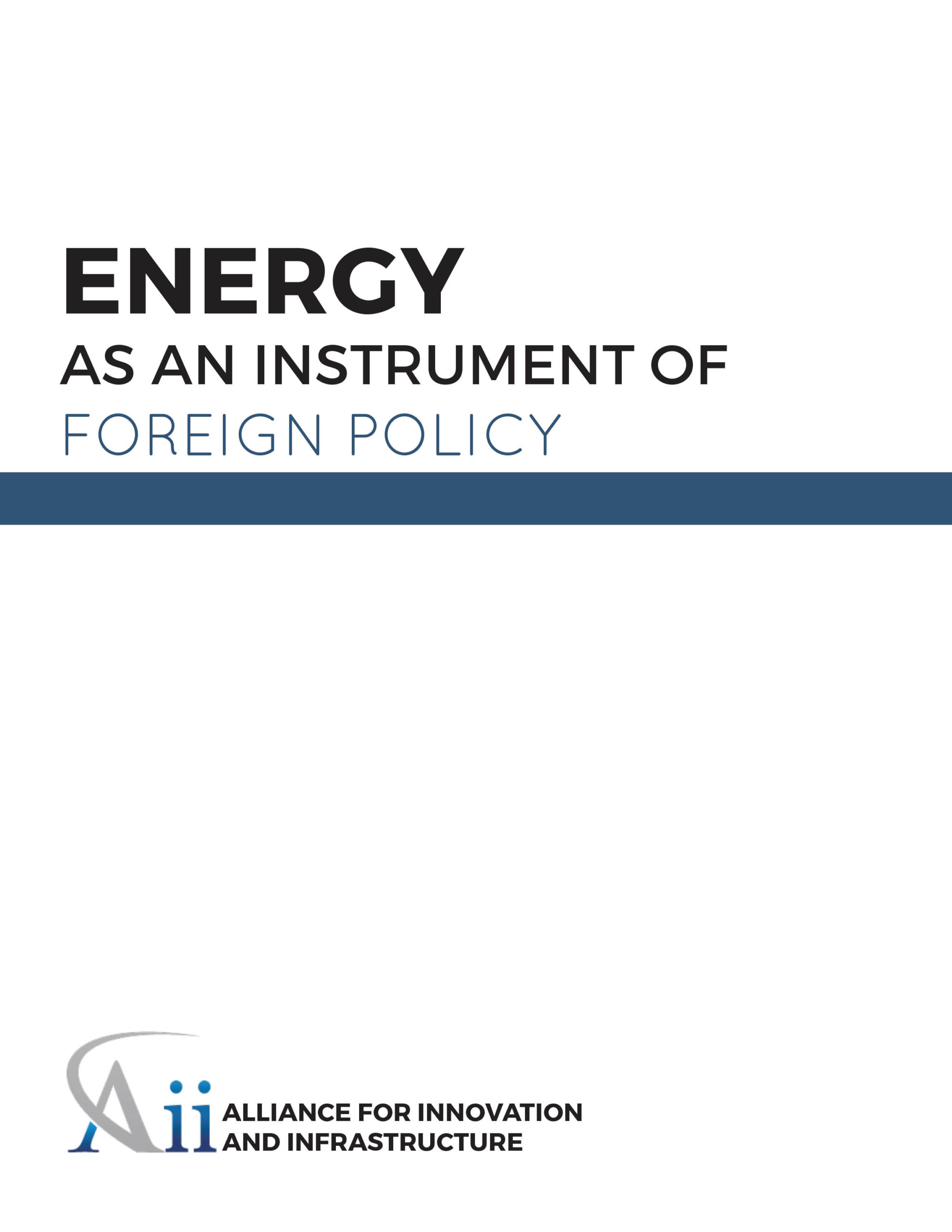
Energy as an Instrument of Foreign Policy June, 2015 Energy, Innovation and Technology, Petroleum, Grid white-papers energy innovation-and-technology petroleum grid 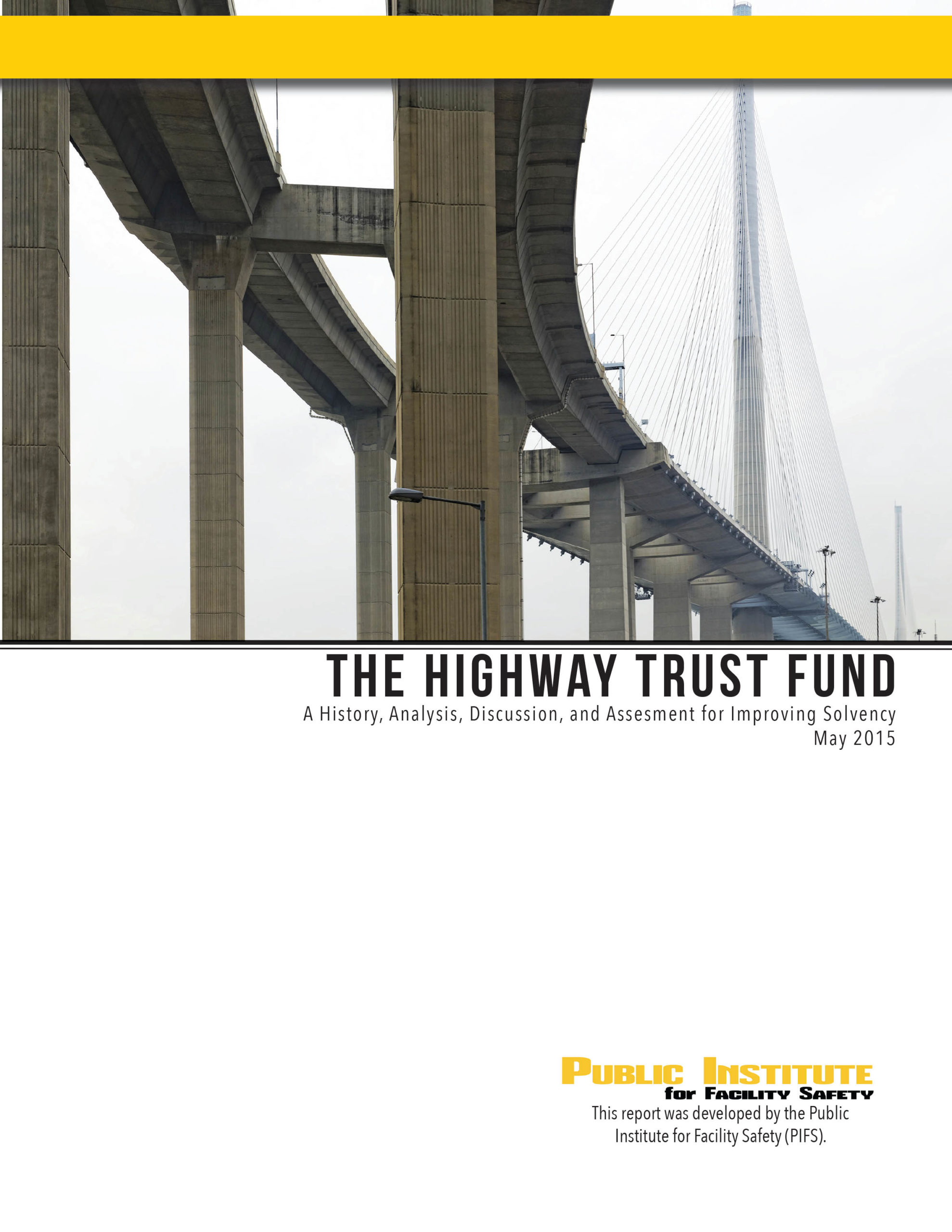
The Highway Trust Fund: A History, Analysis, Discussion, and Assessment for Improving Solvency May, 2015 Transportation, Innovation and Technology, Economics white-papers transportation innovation-and-technology economics
